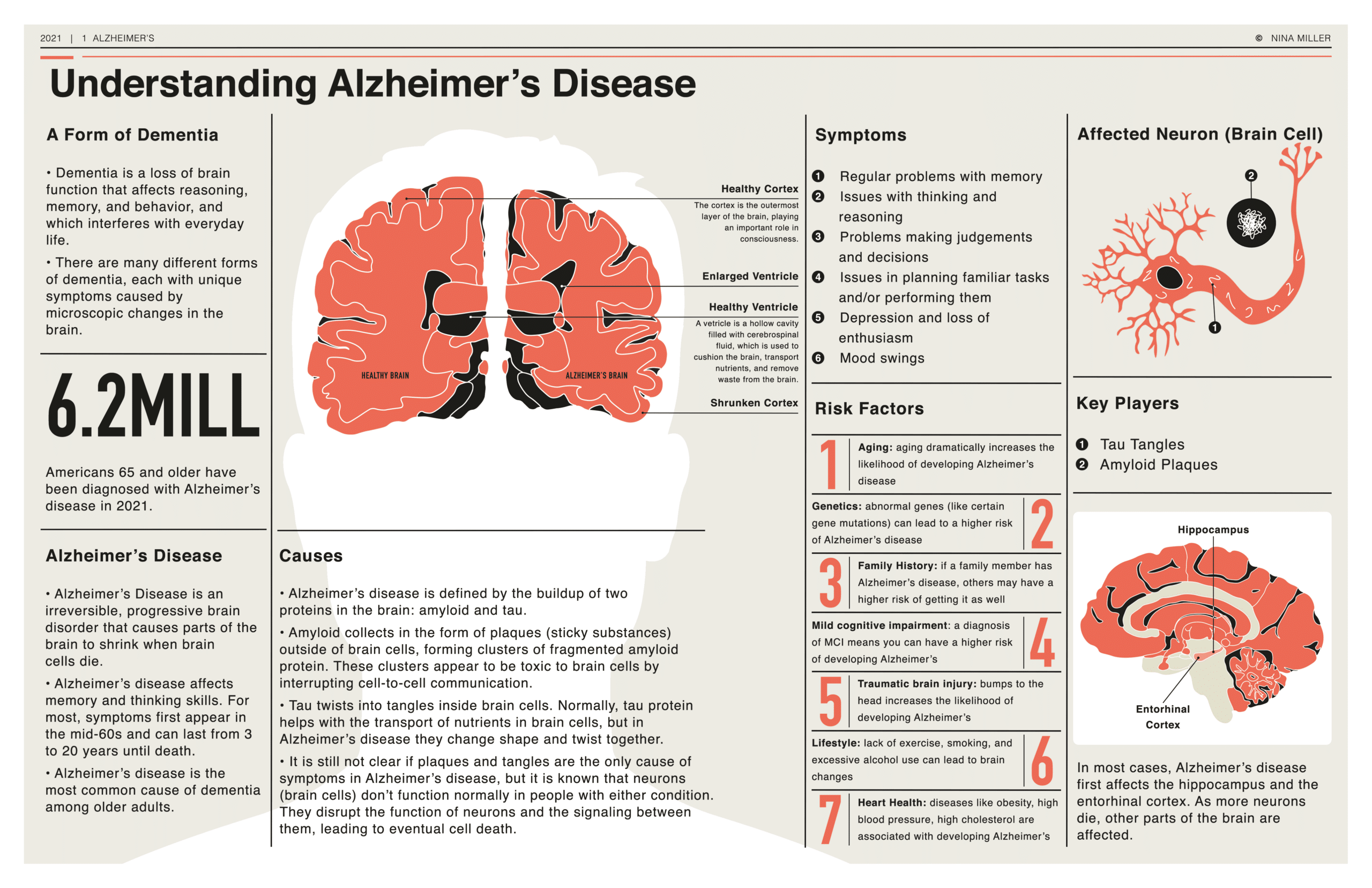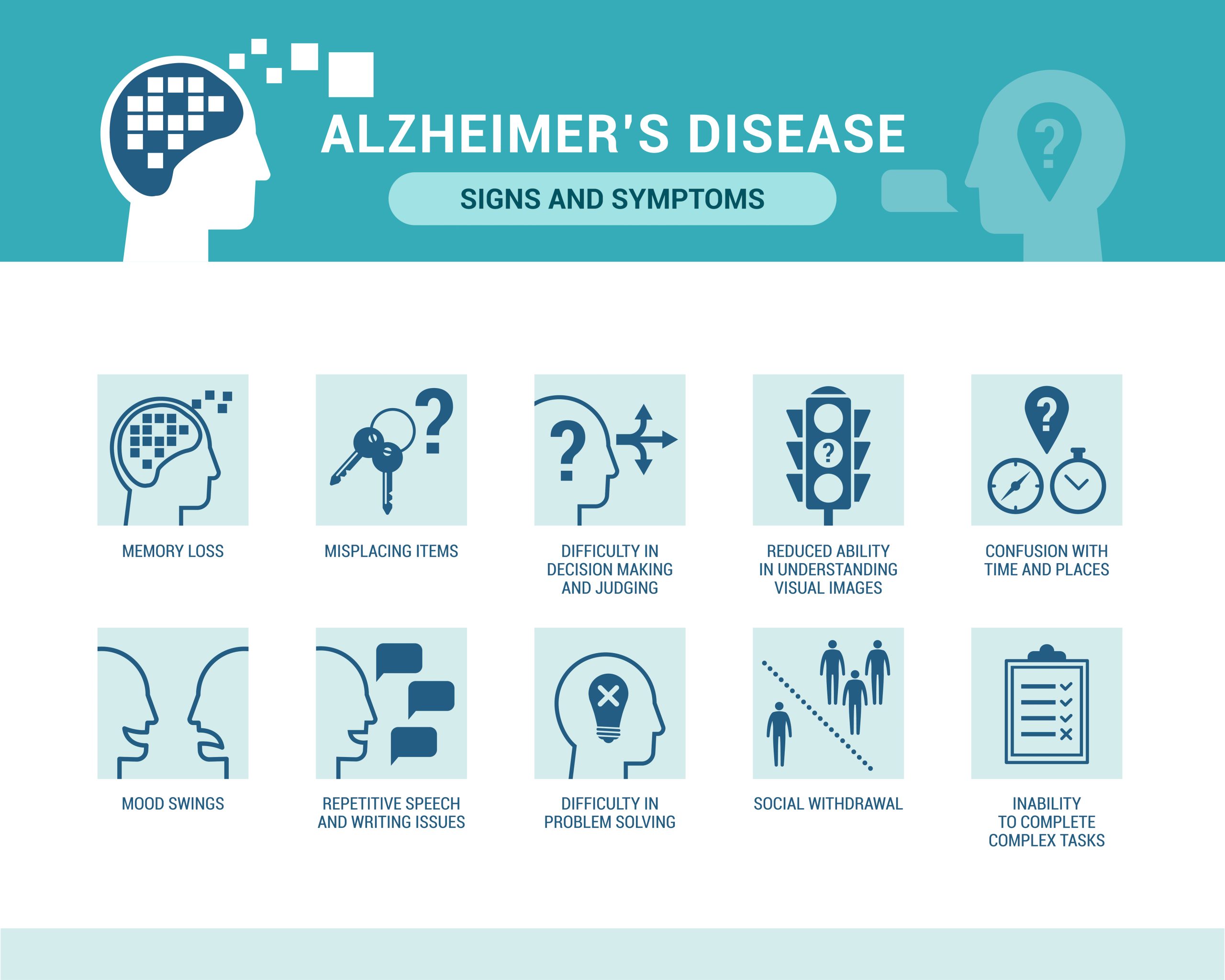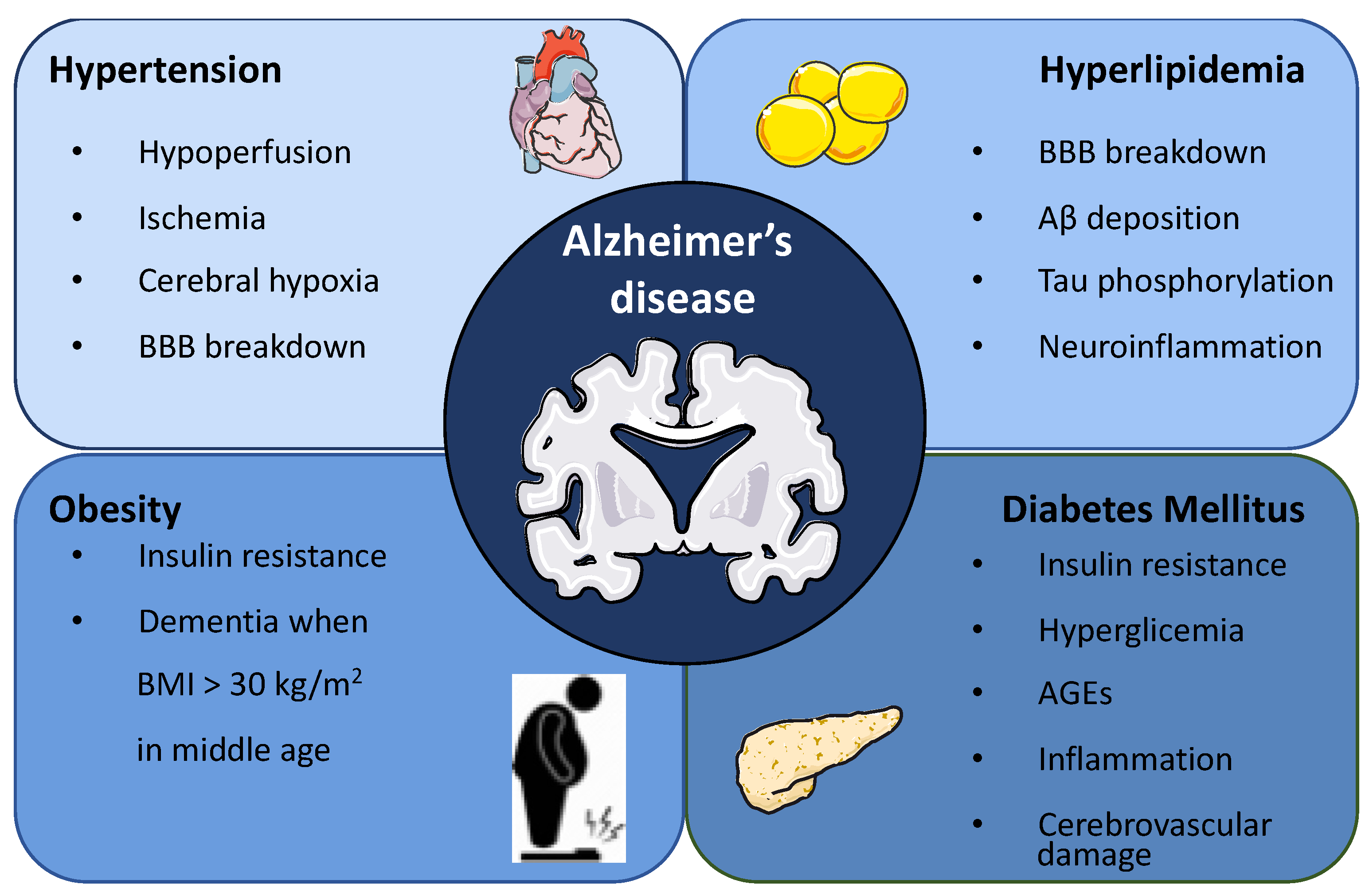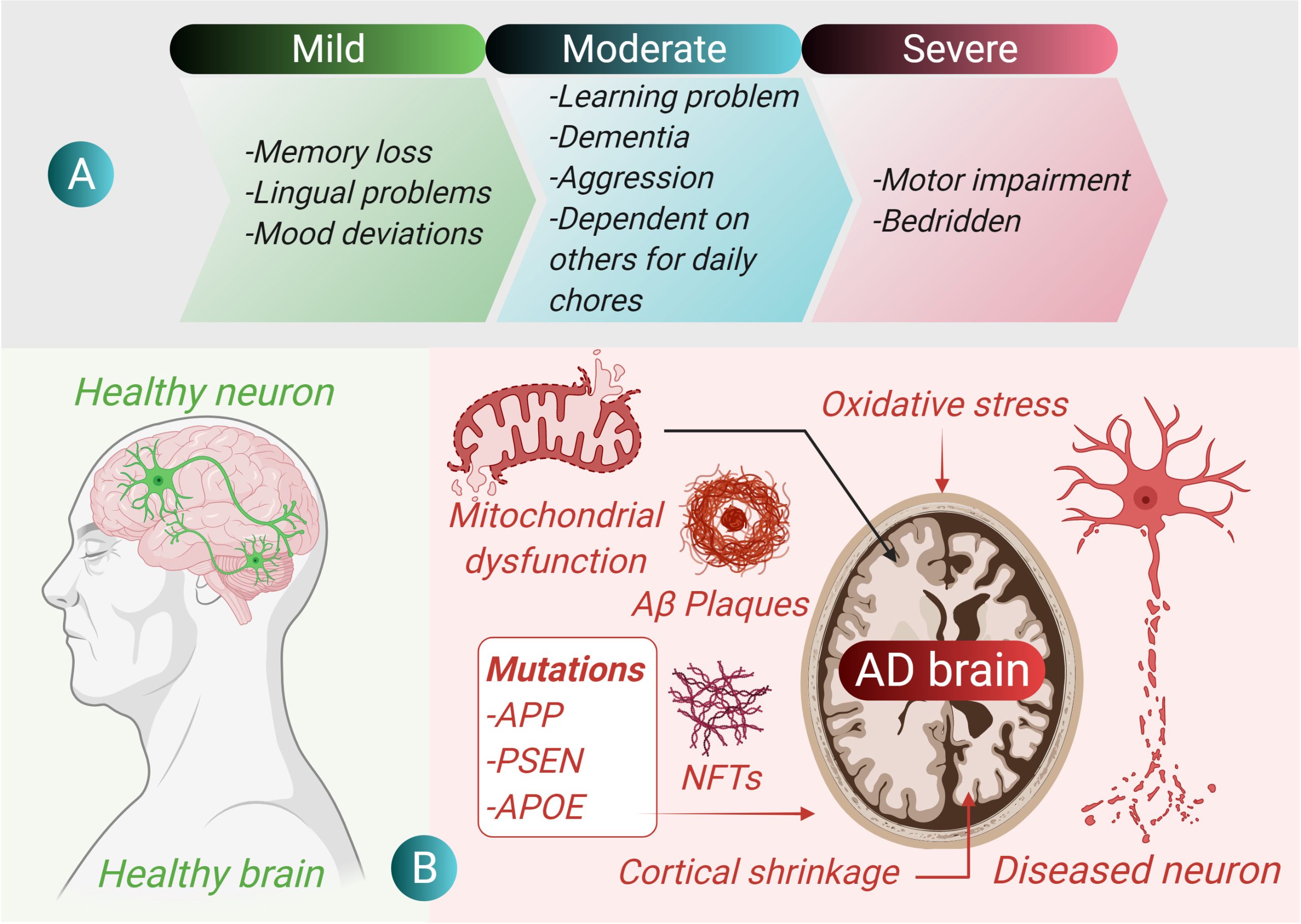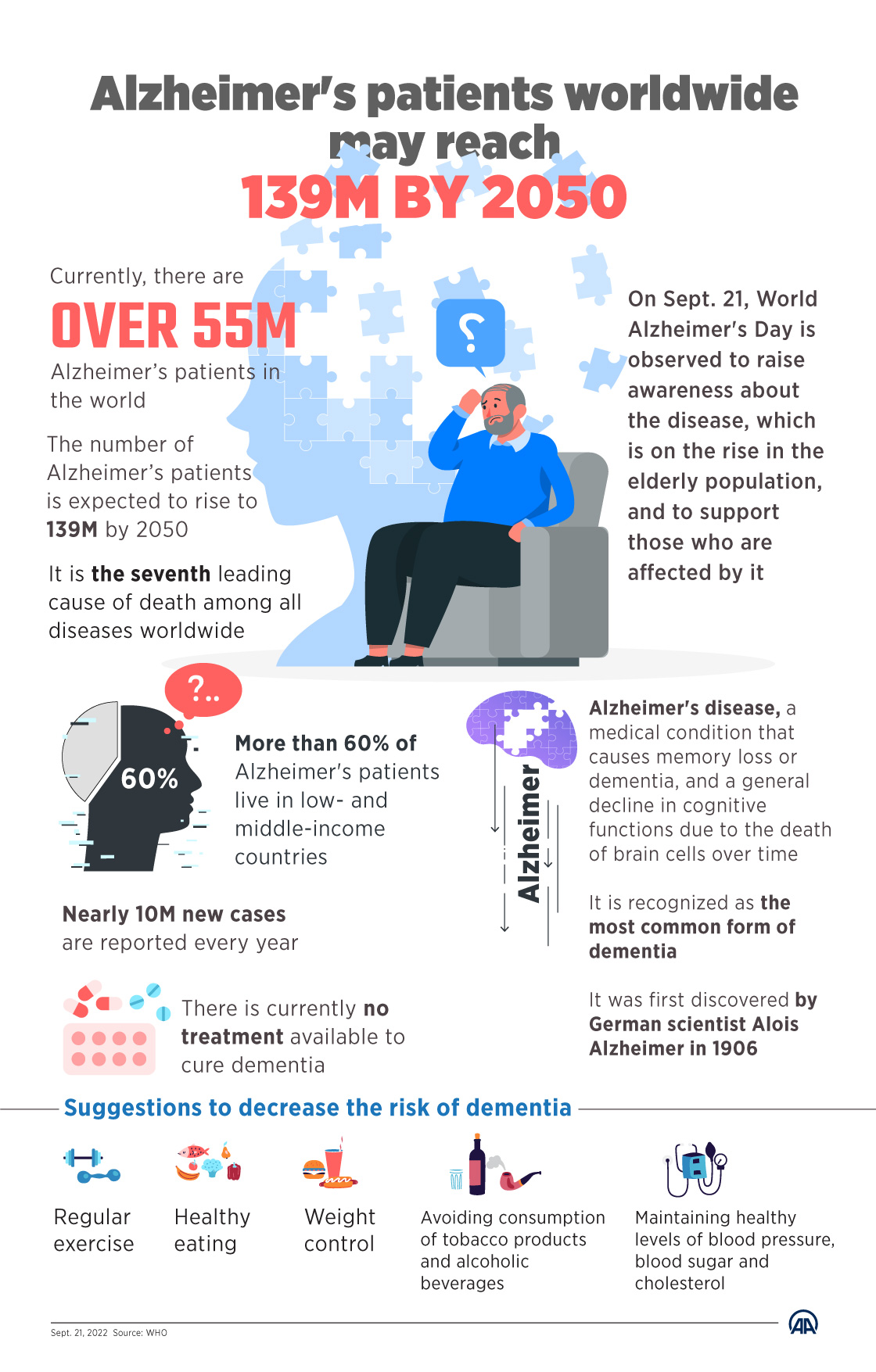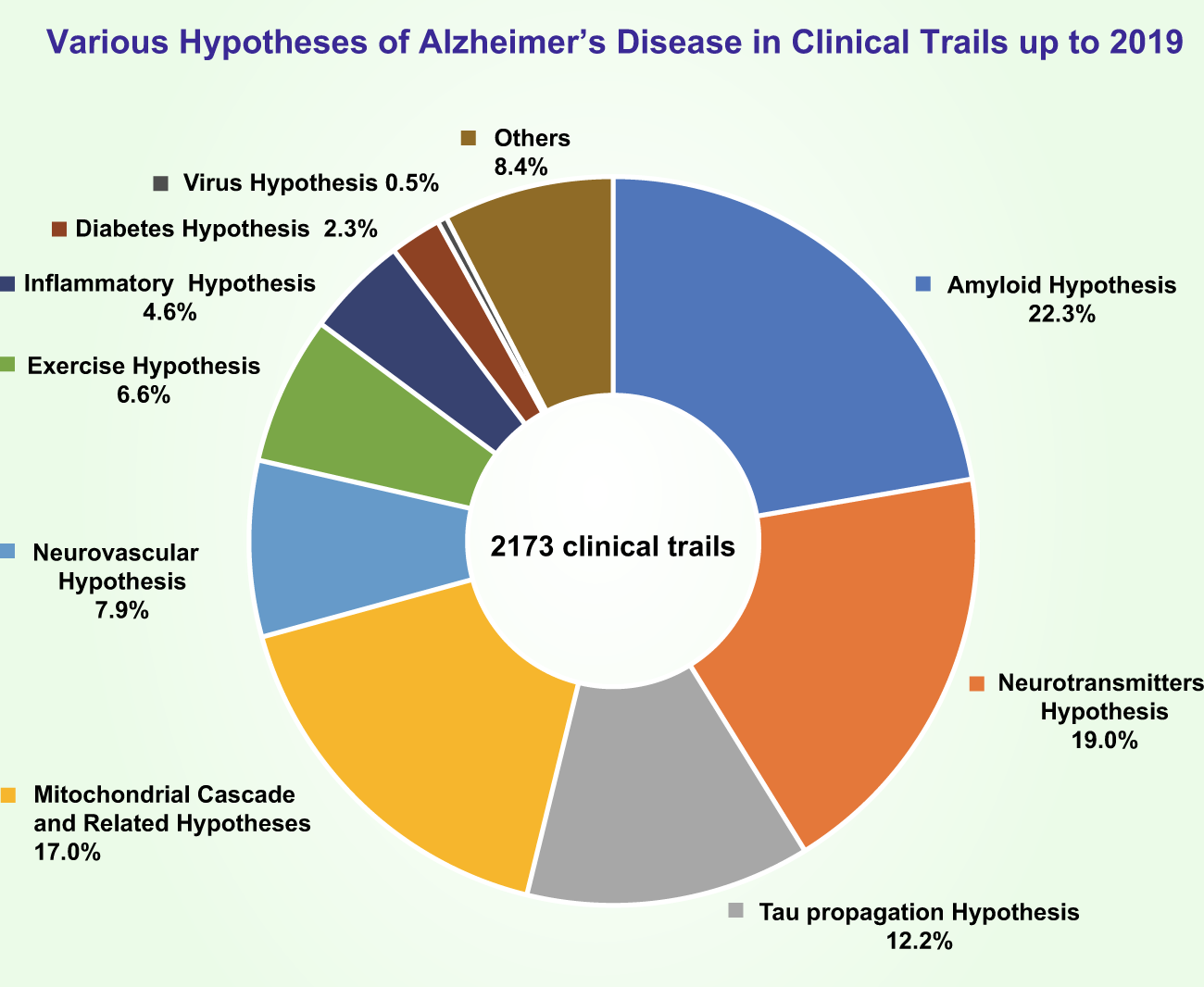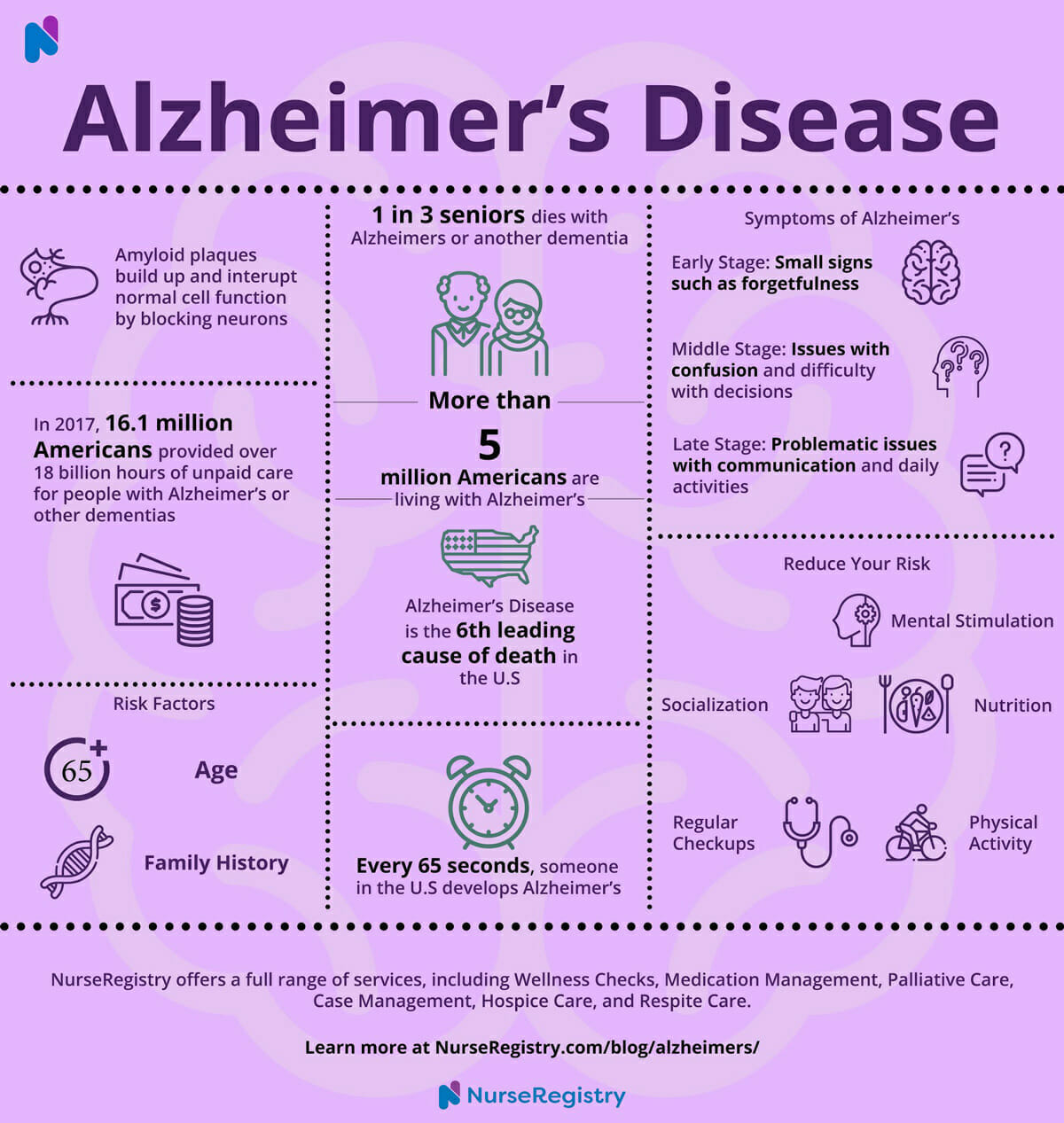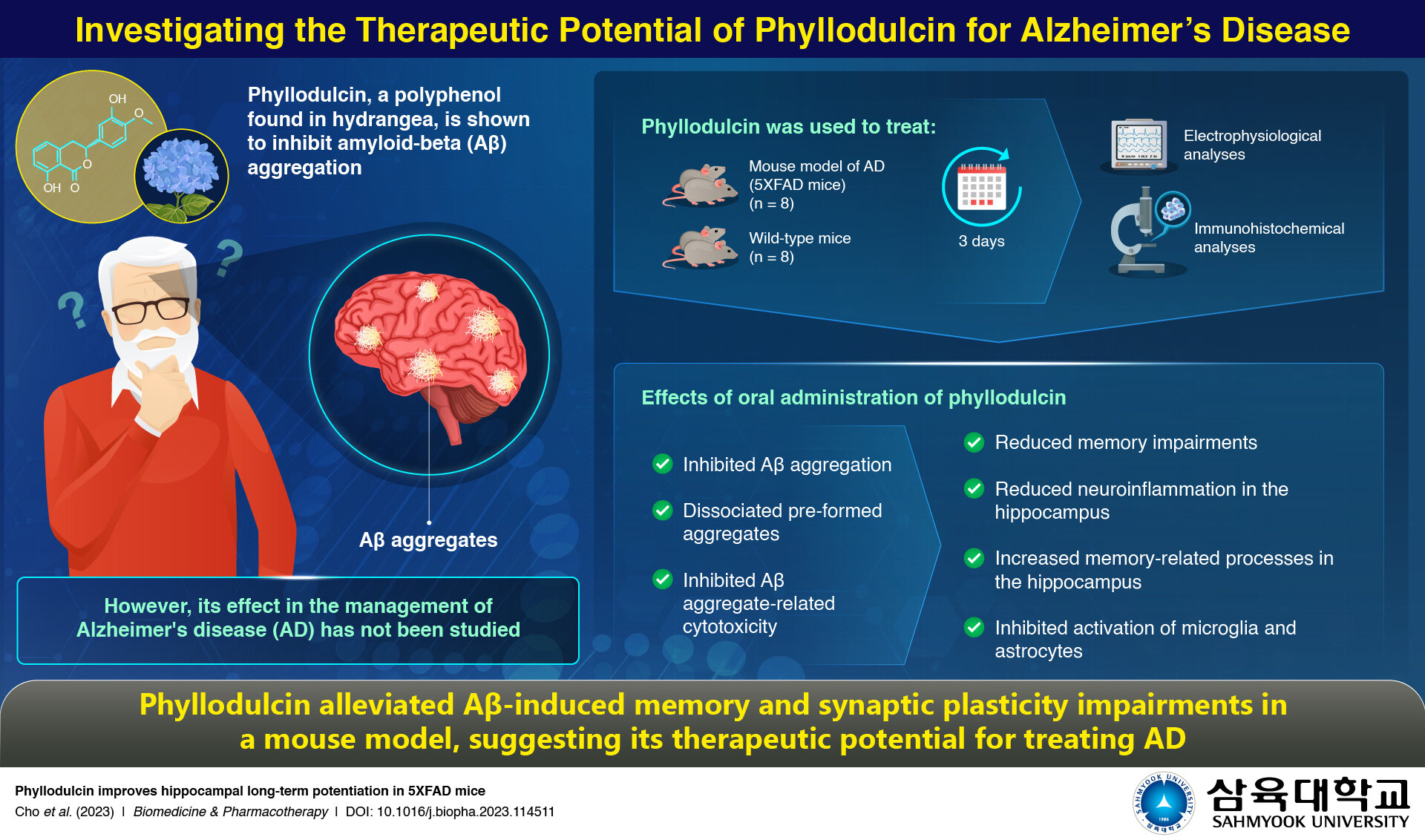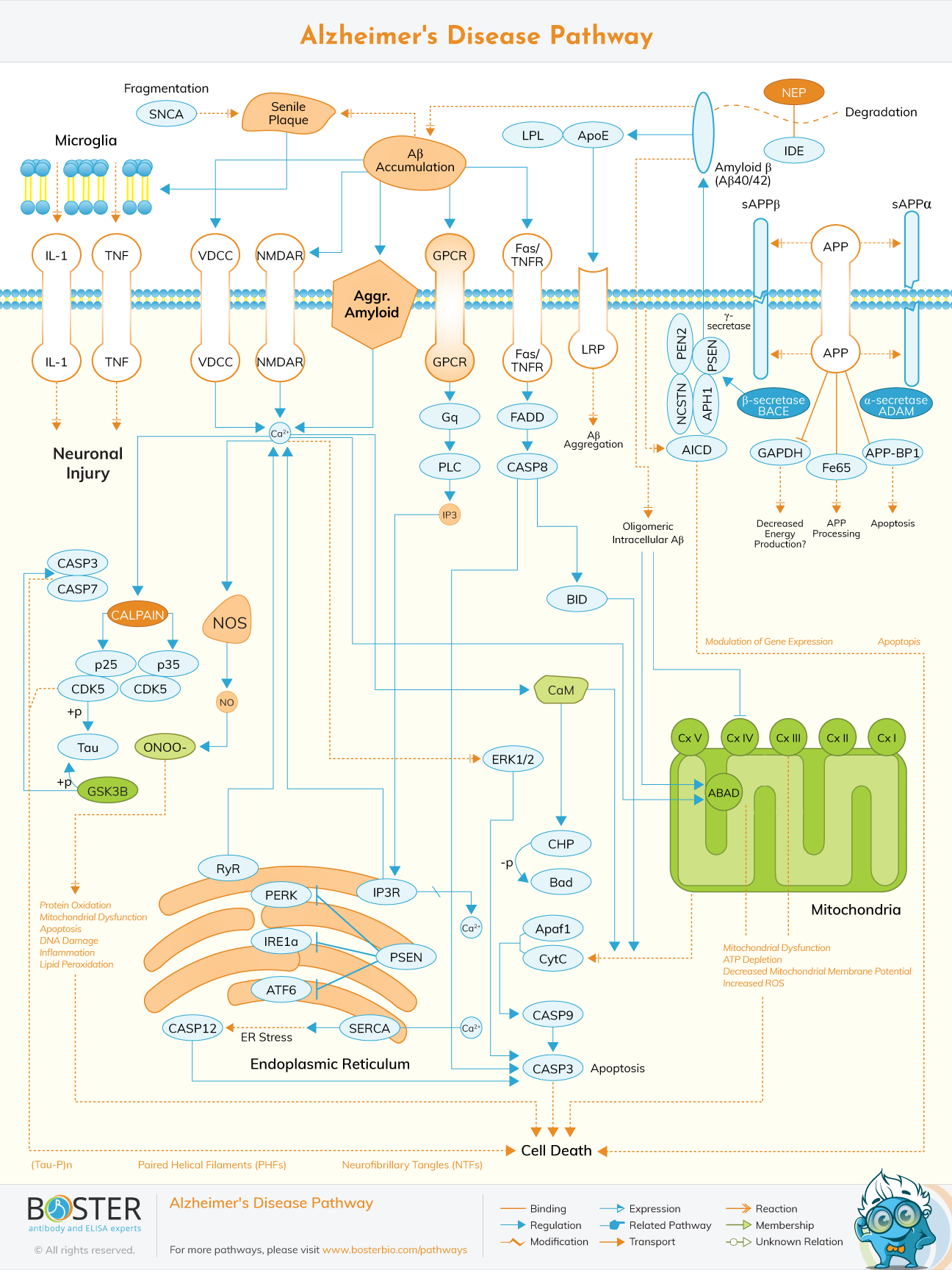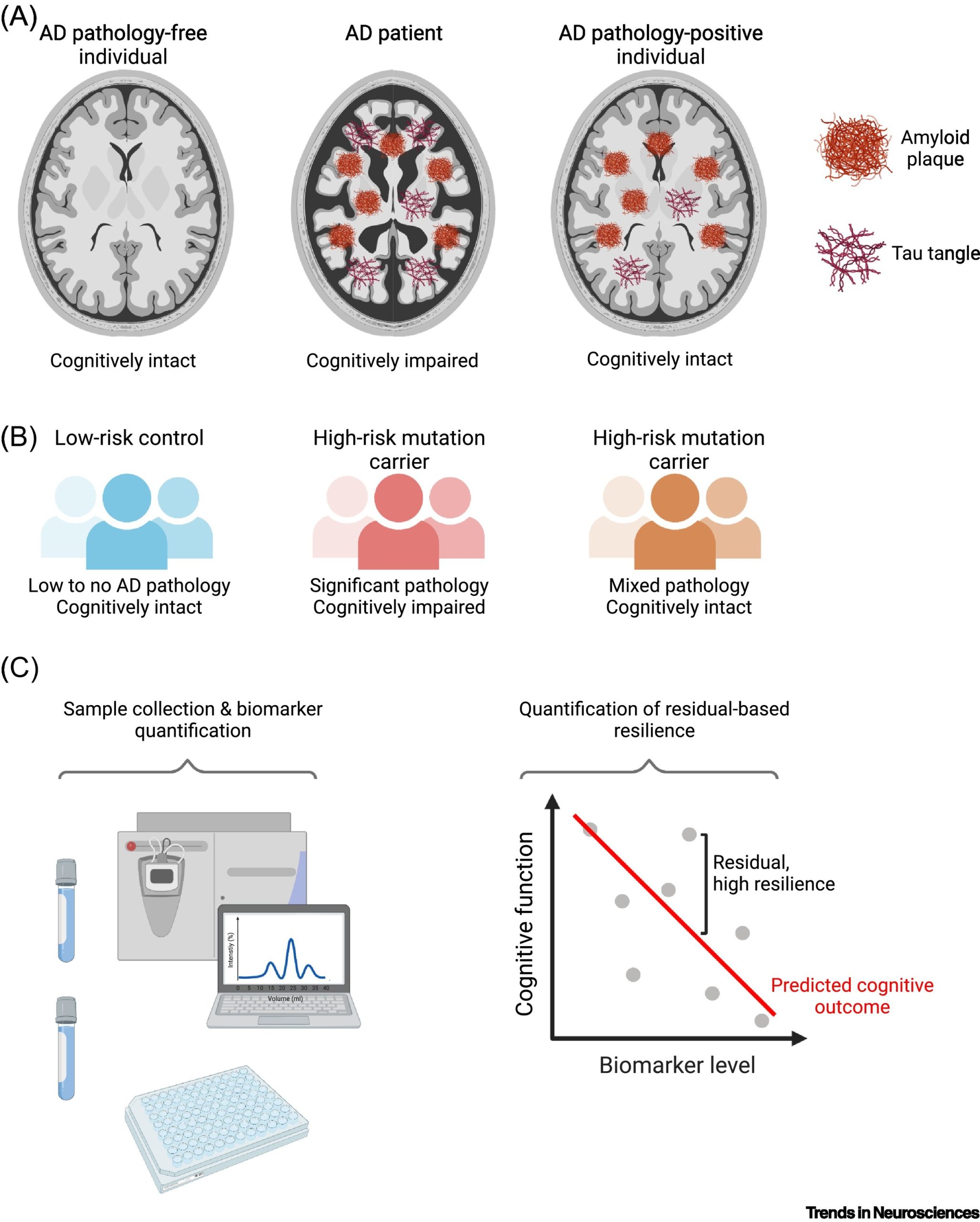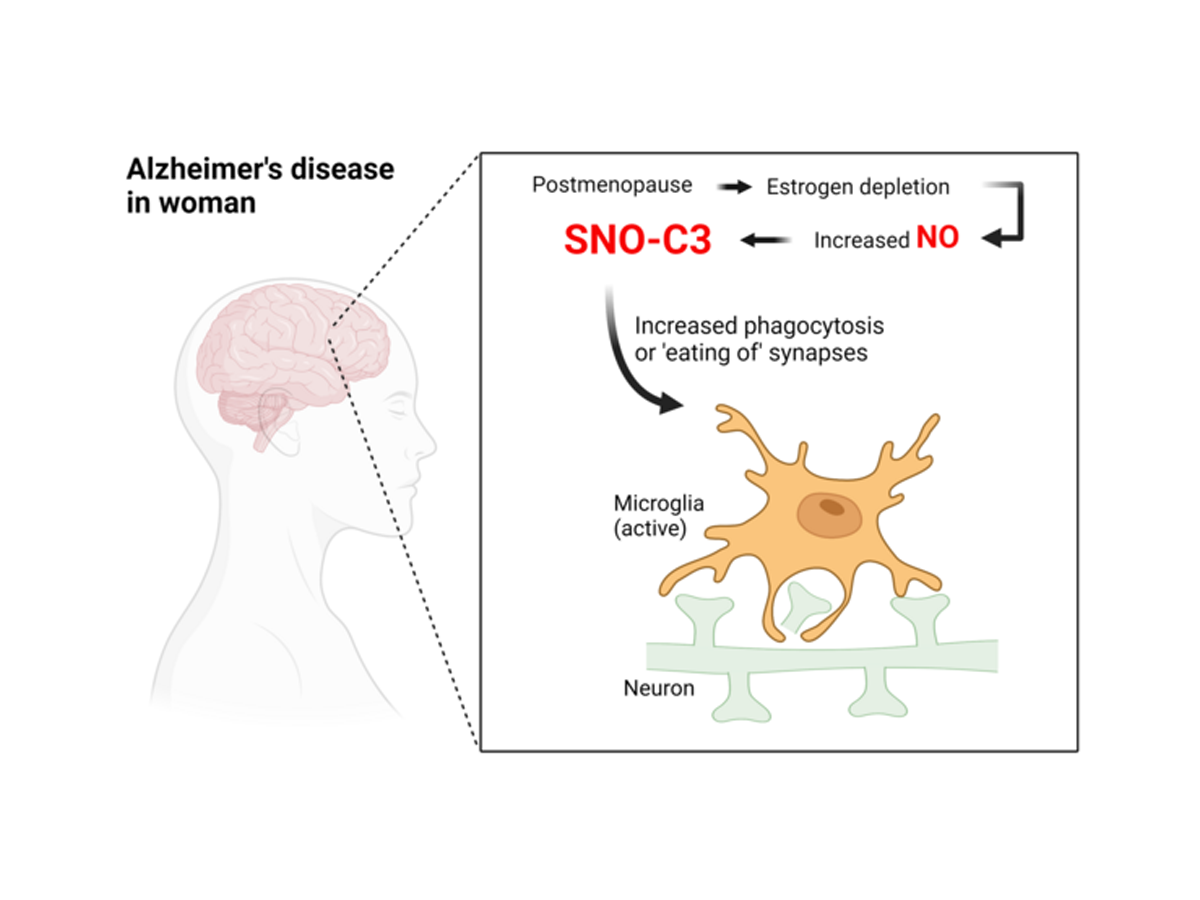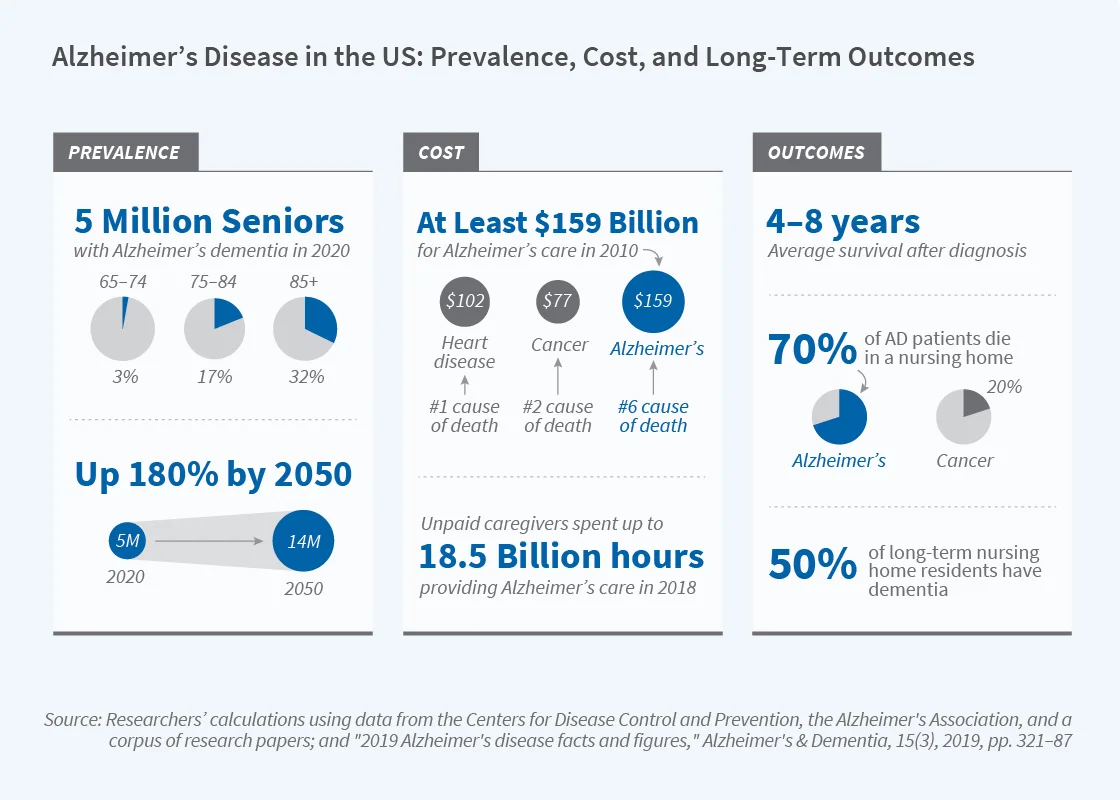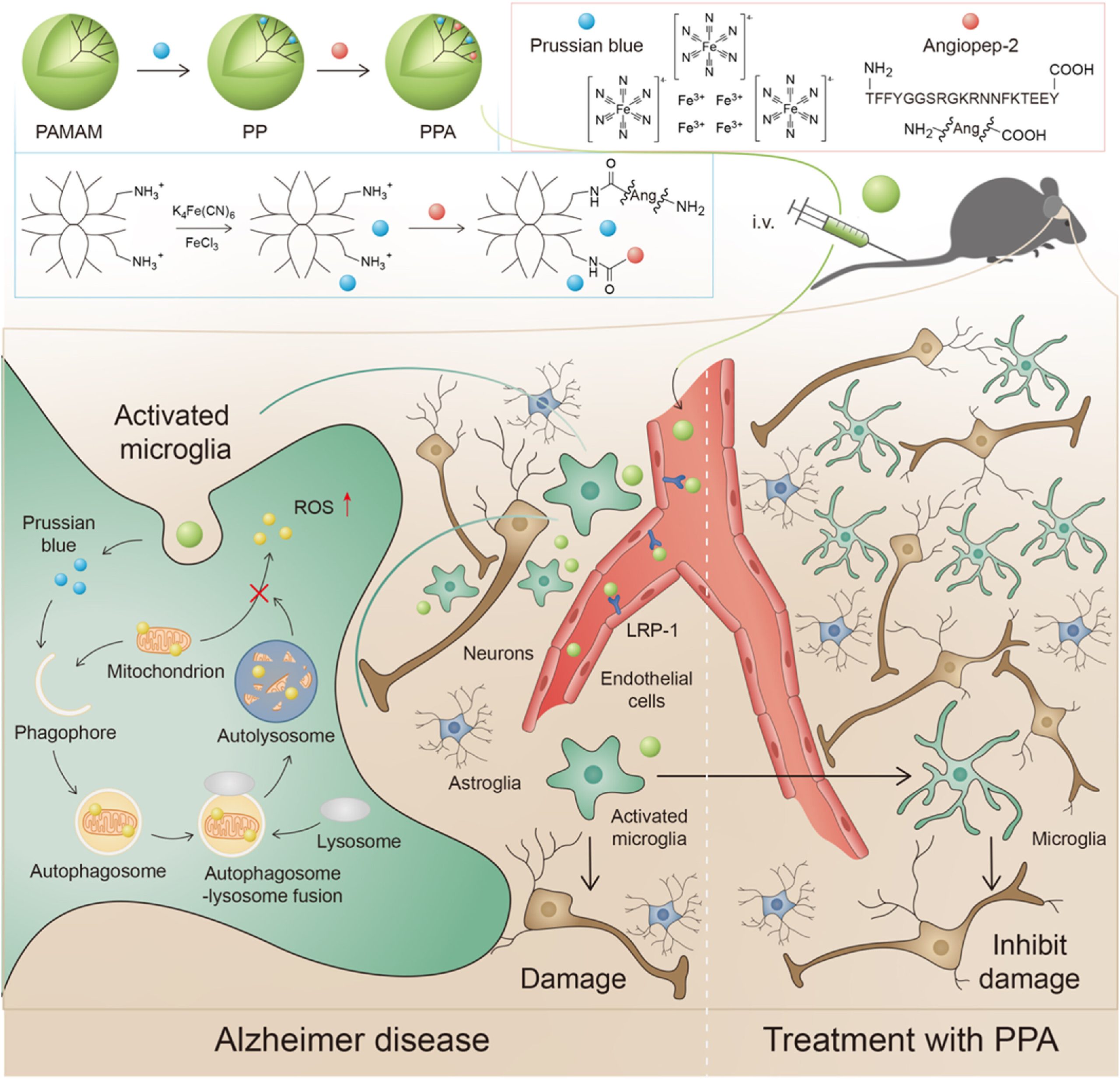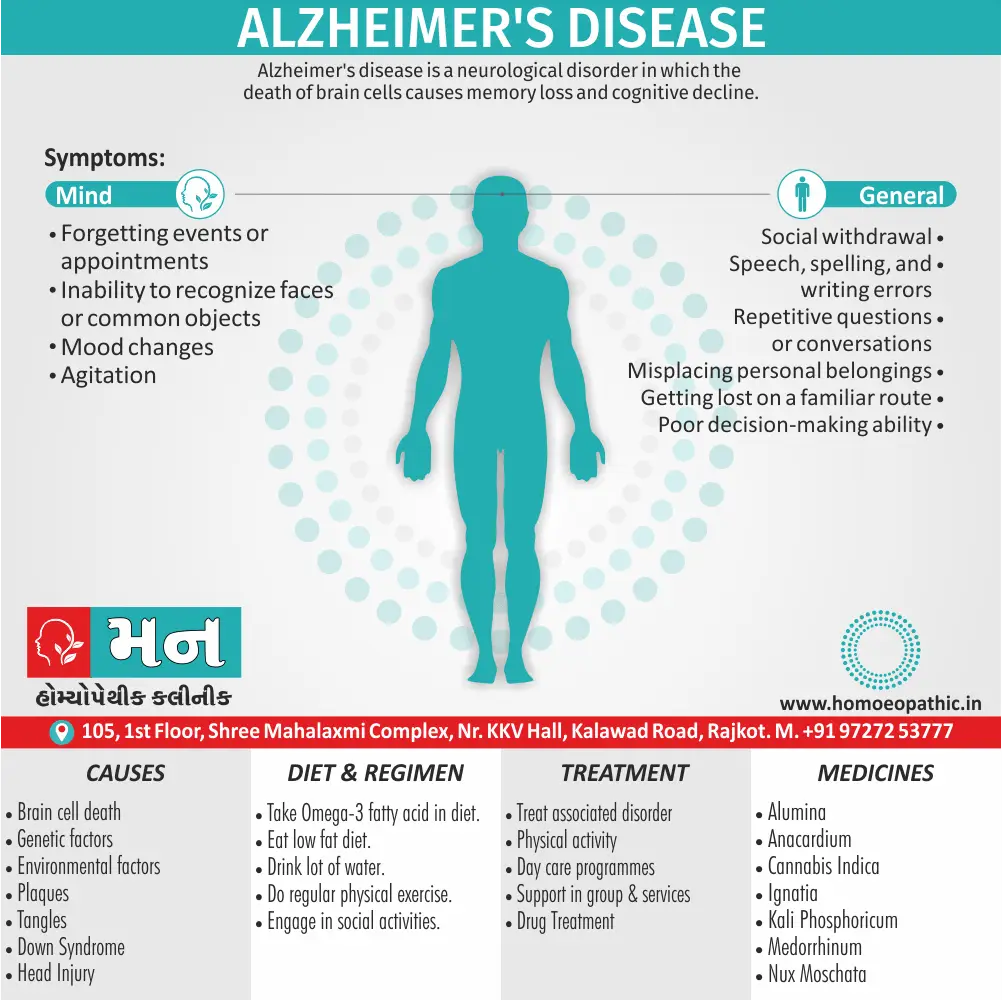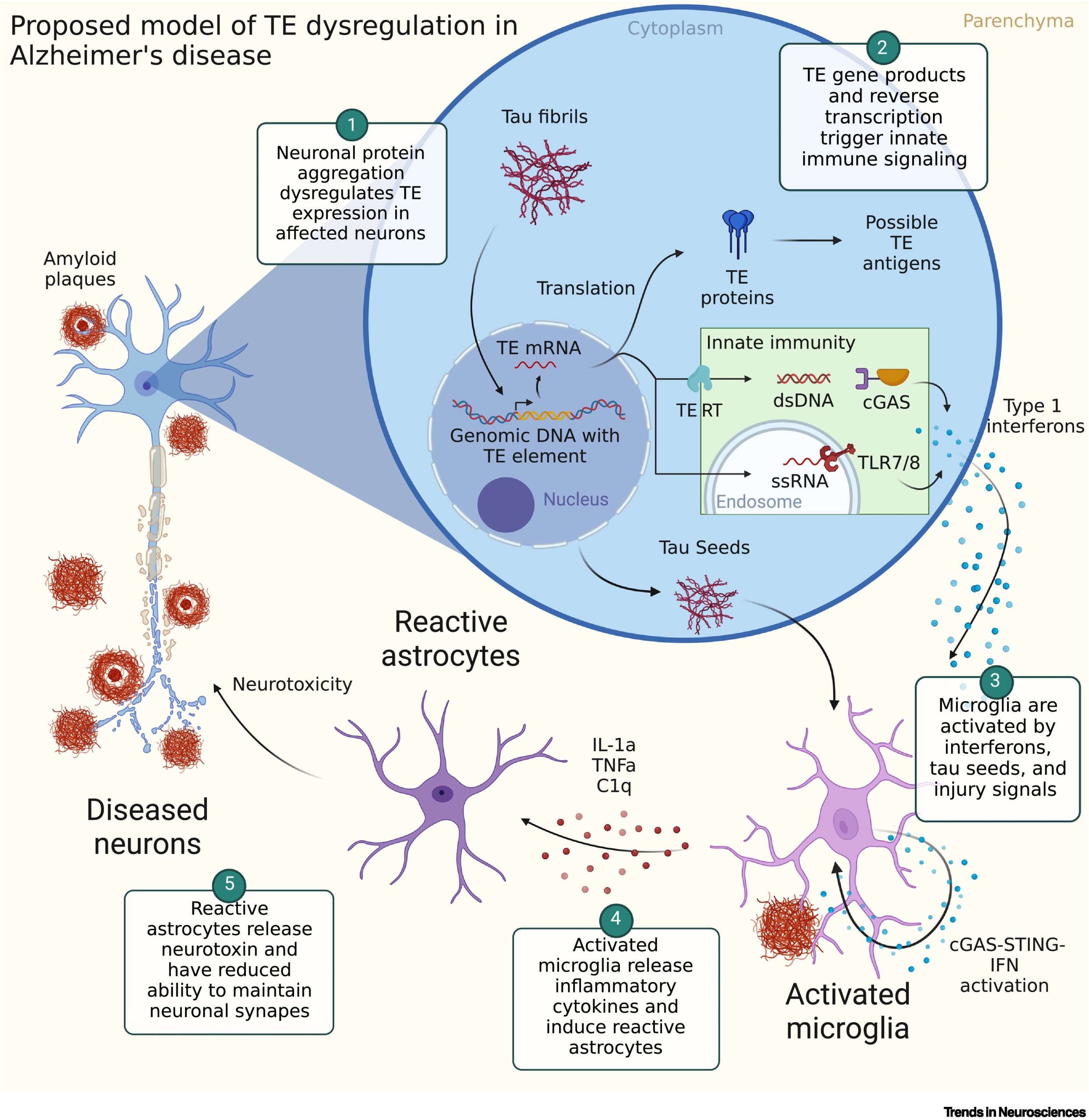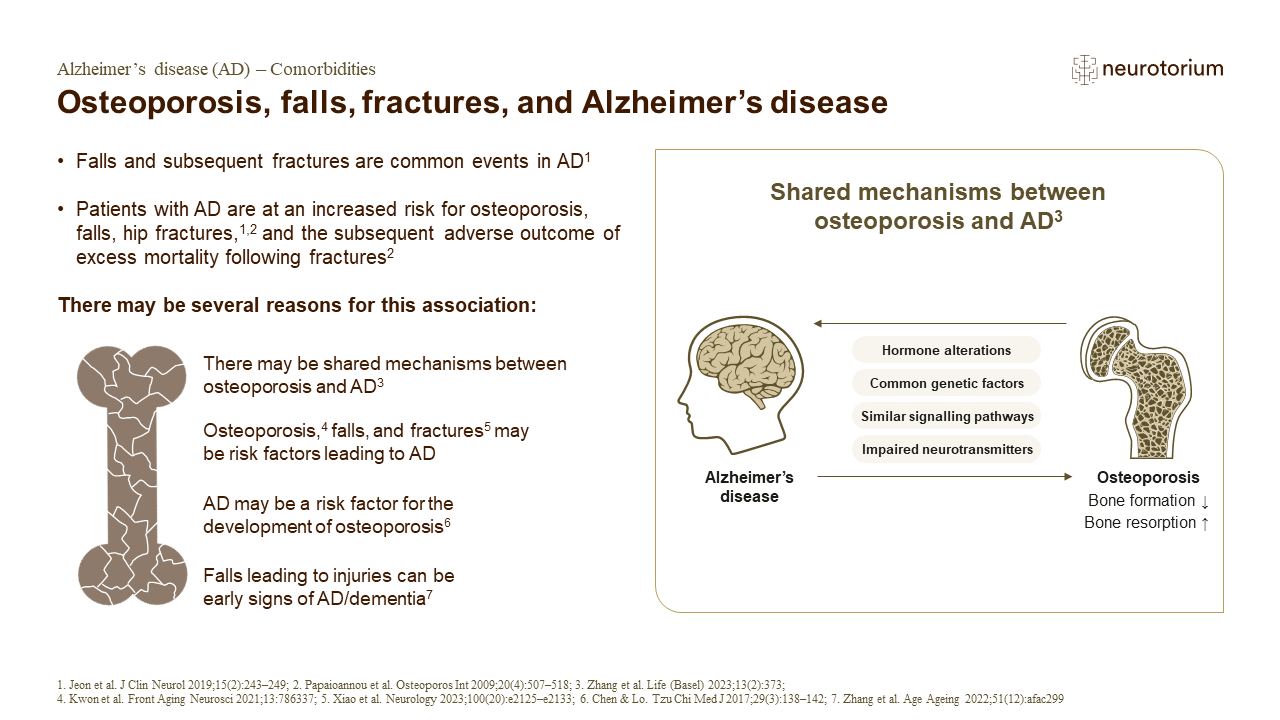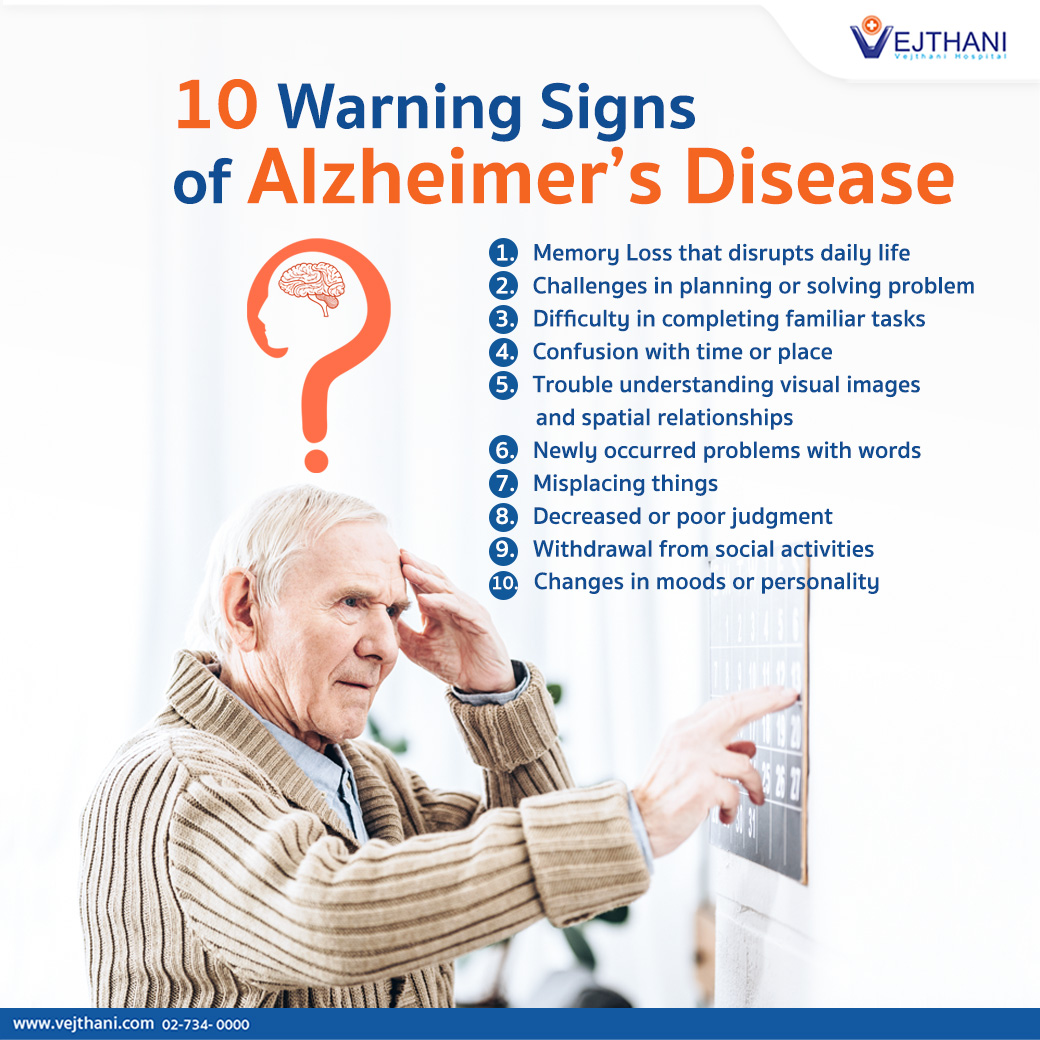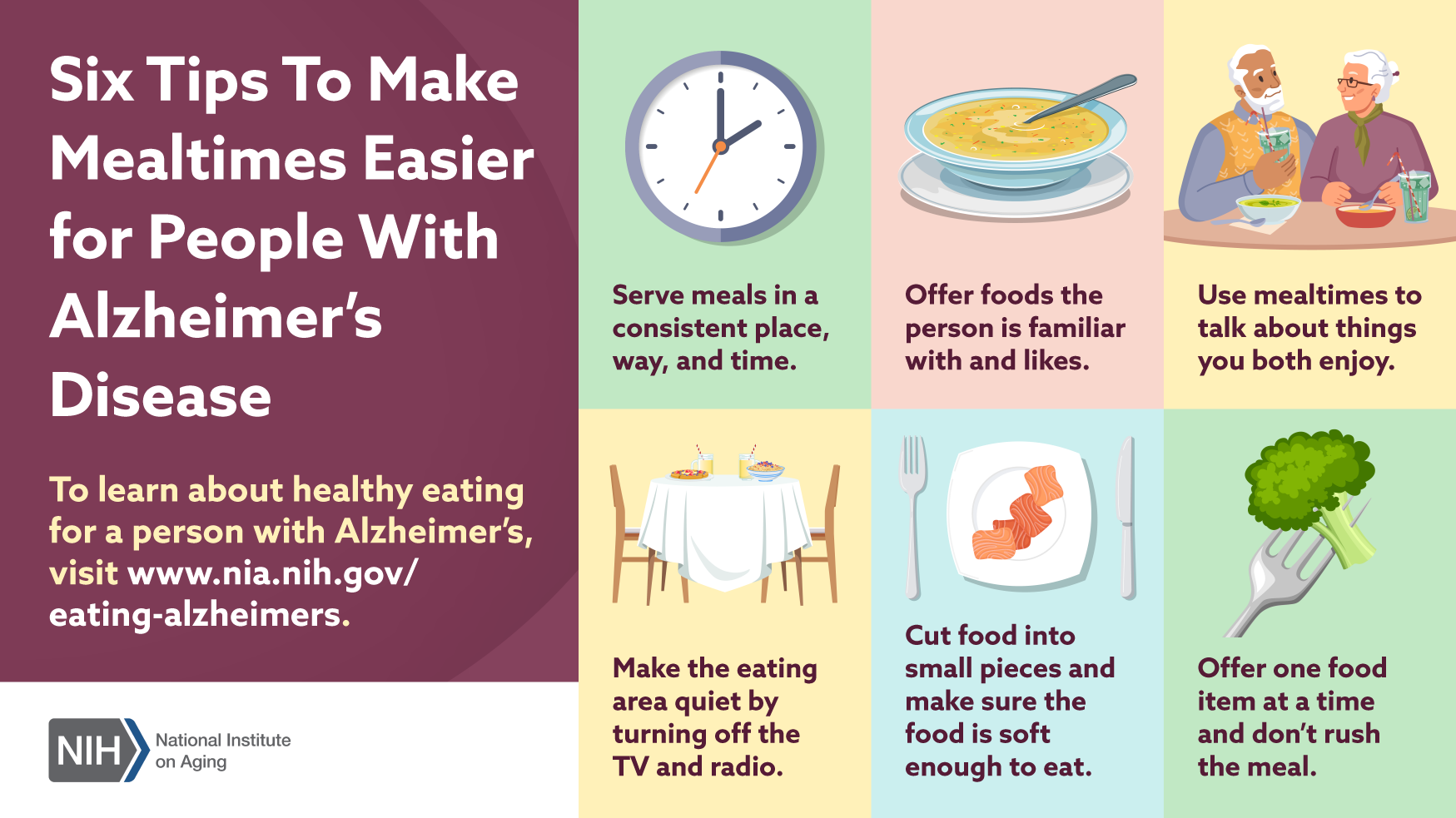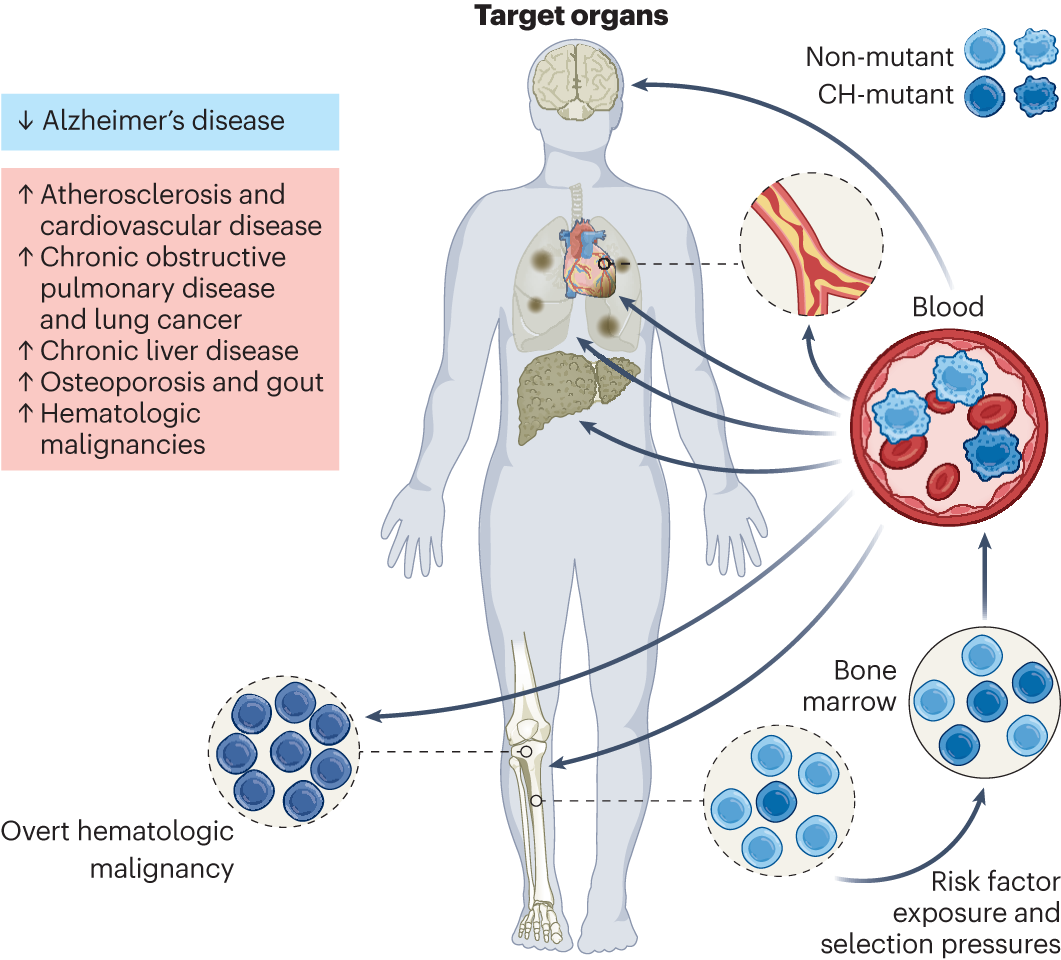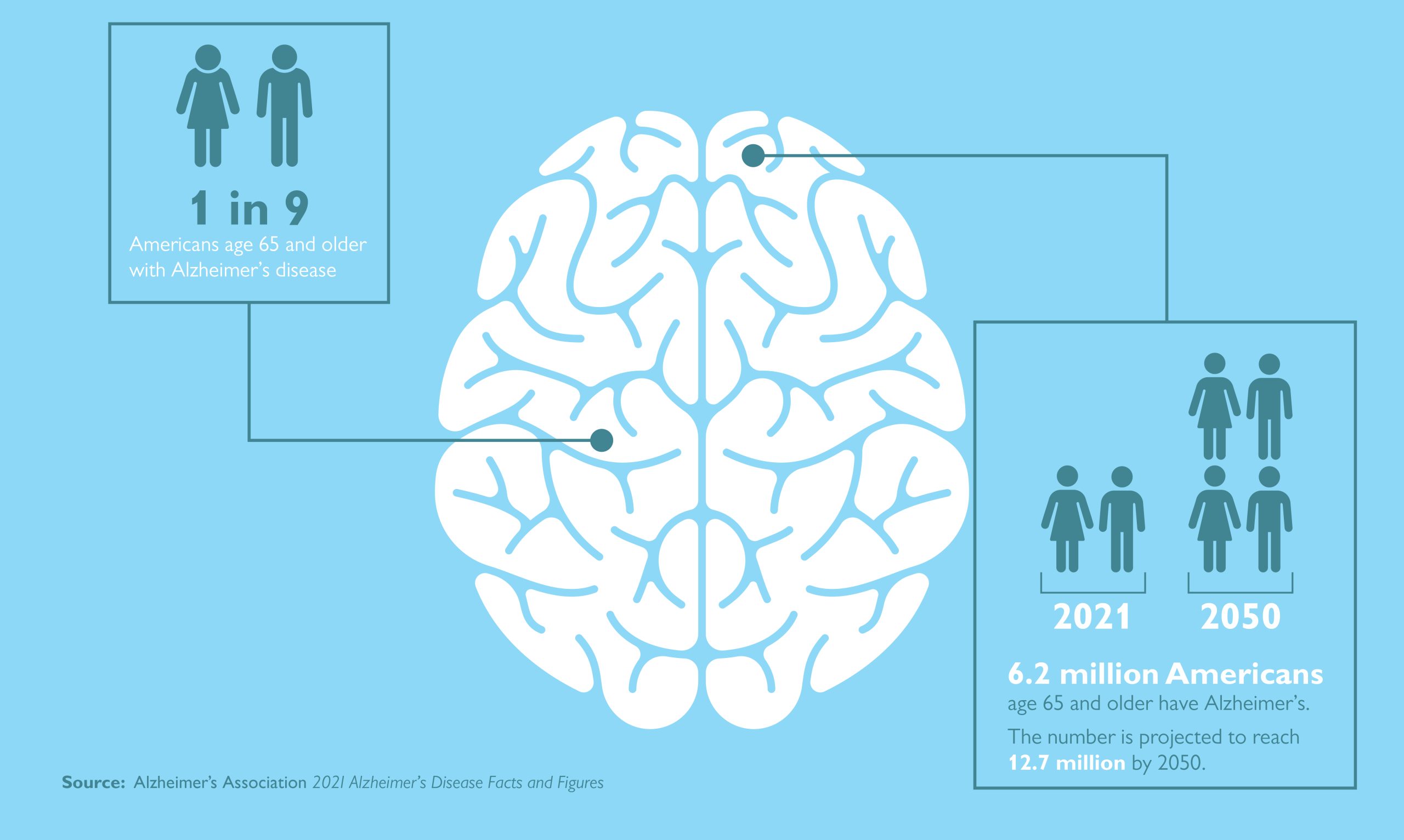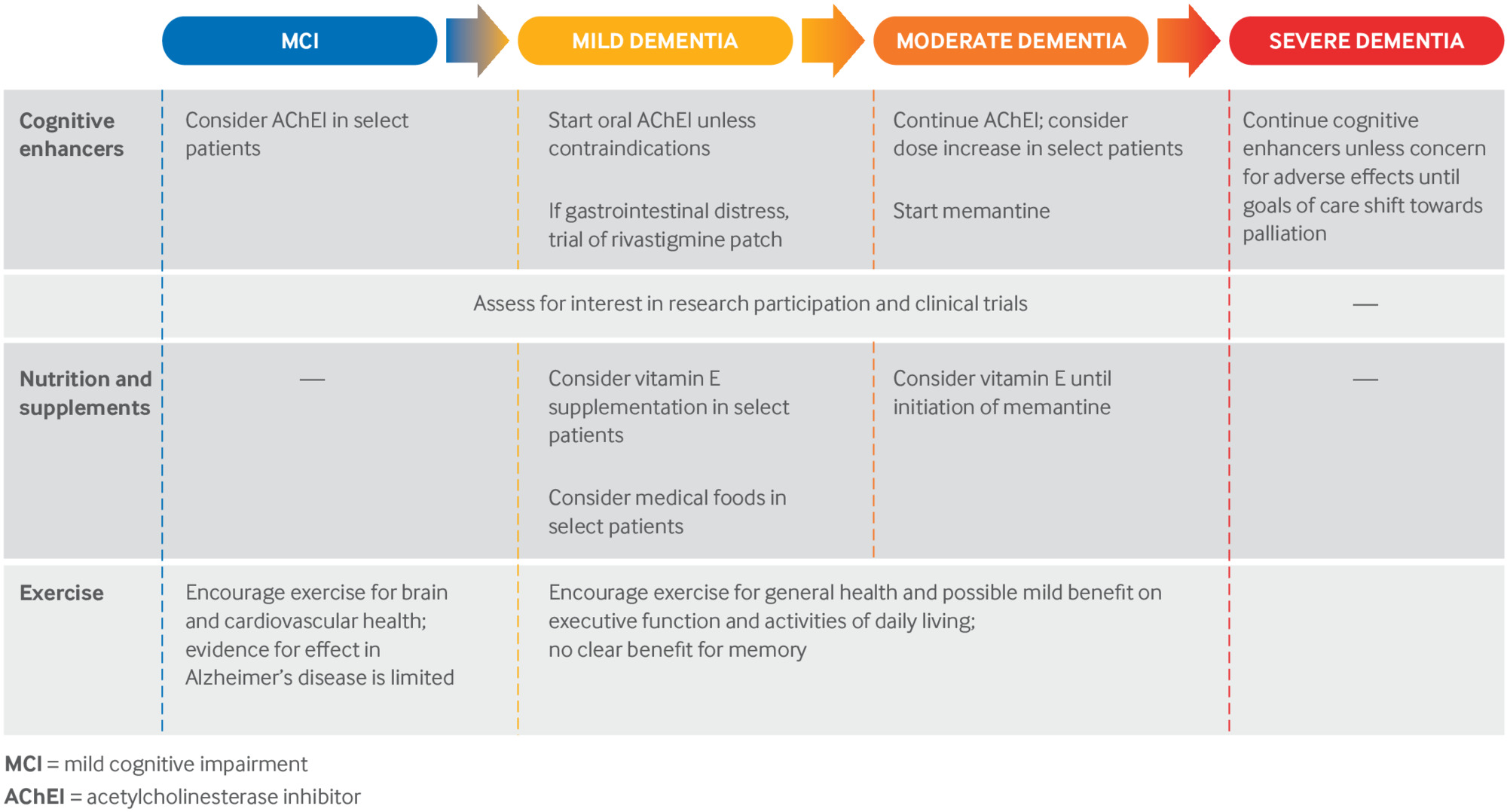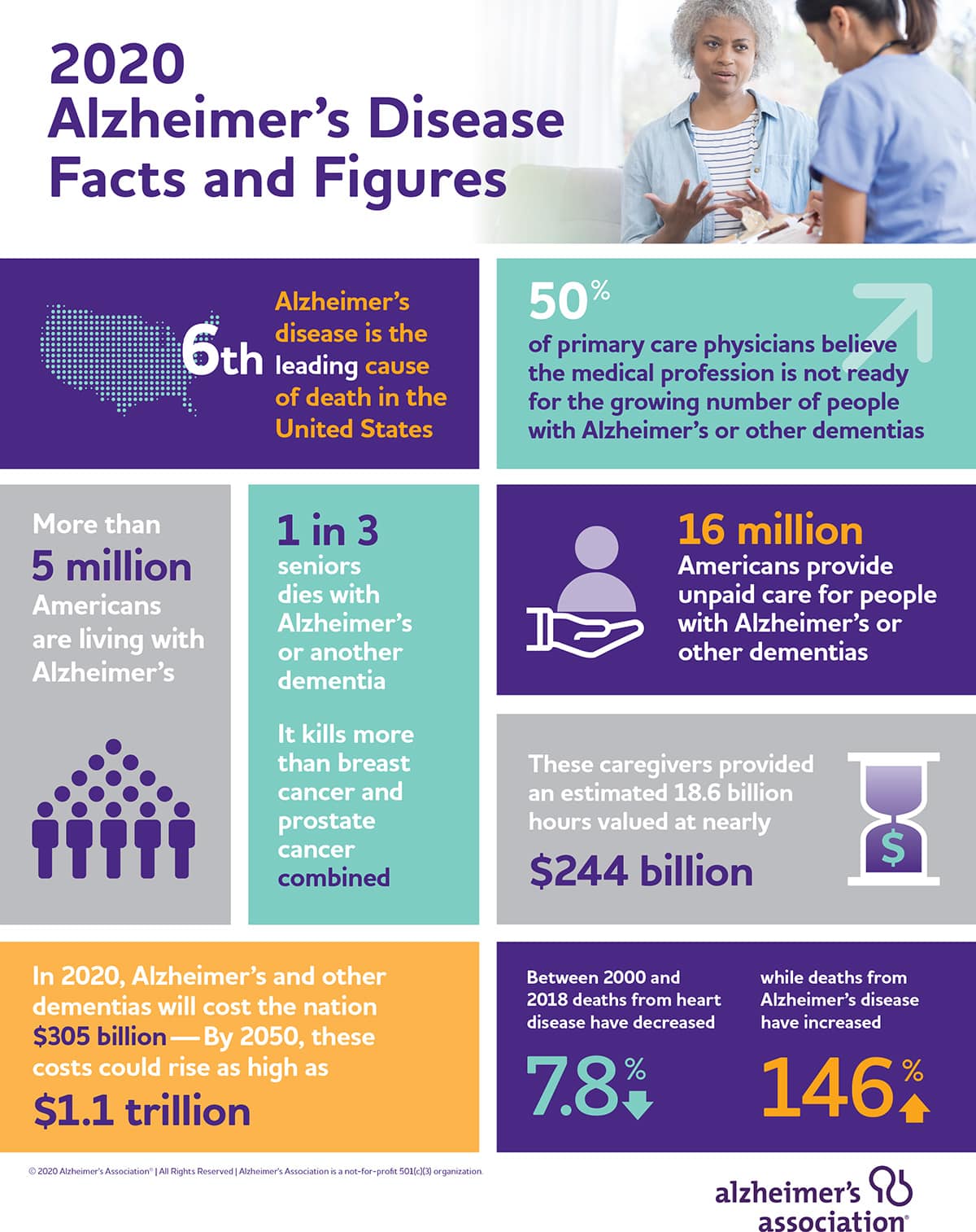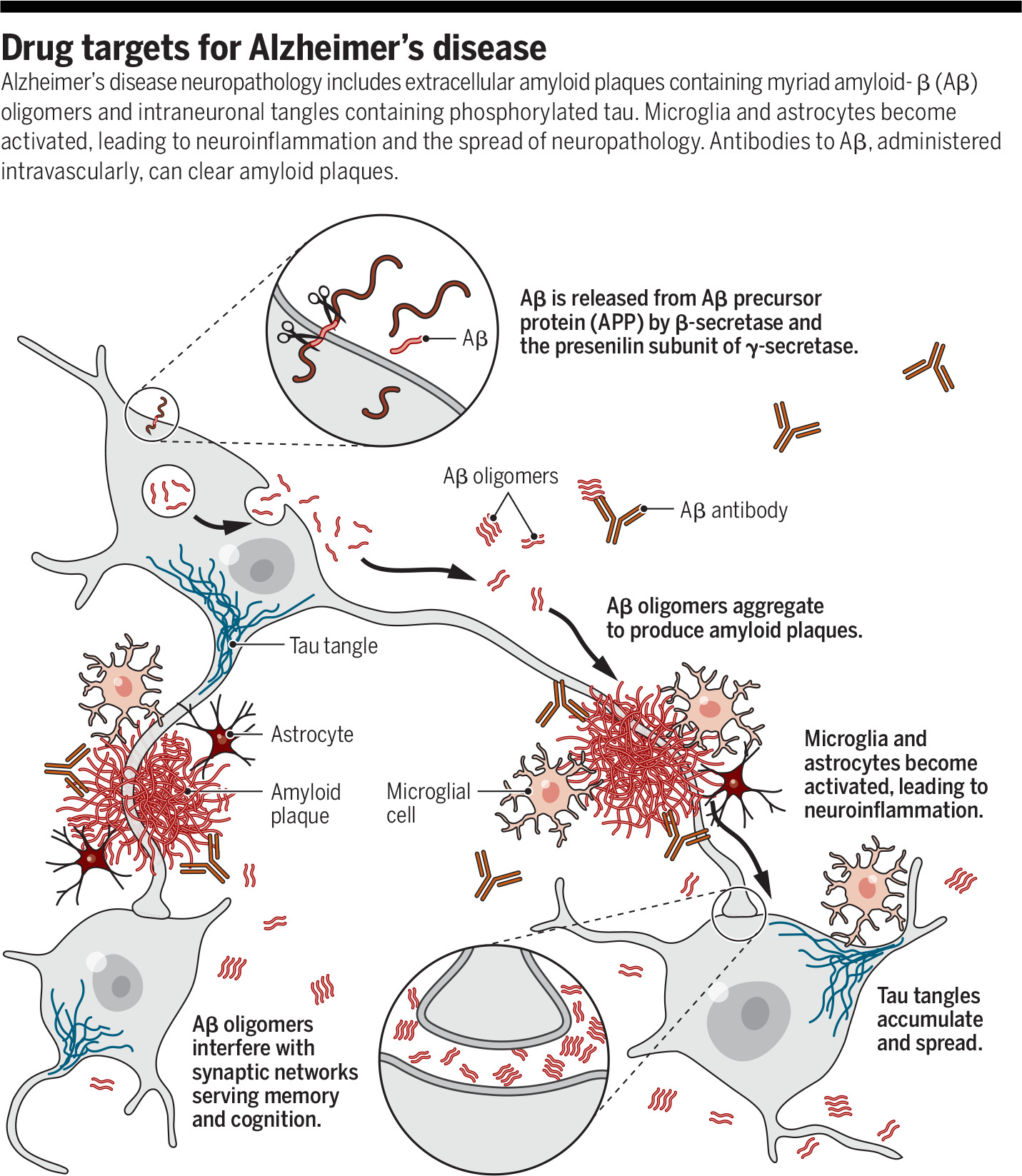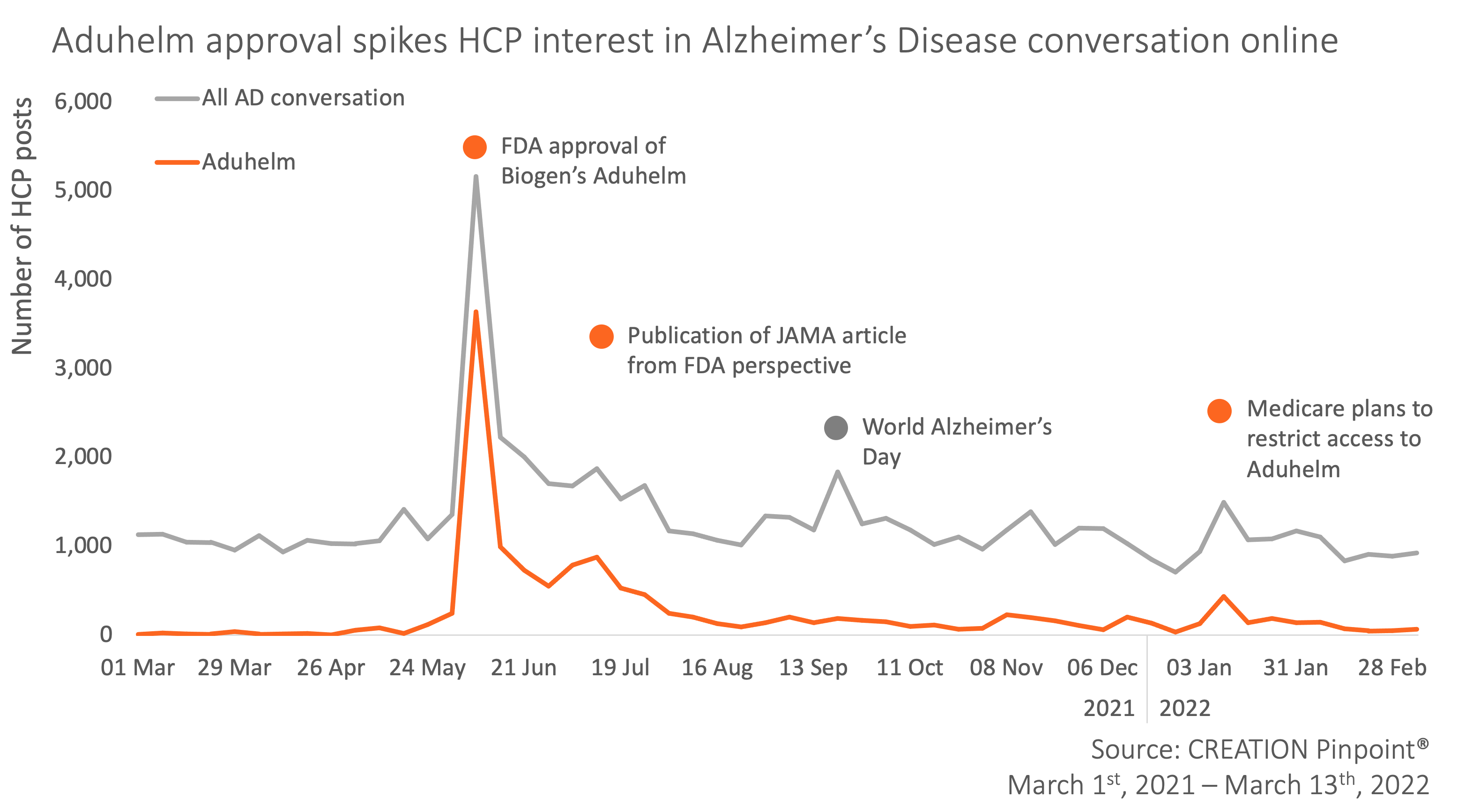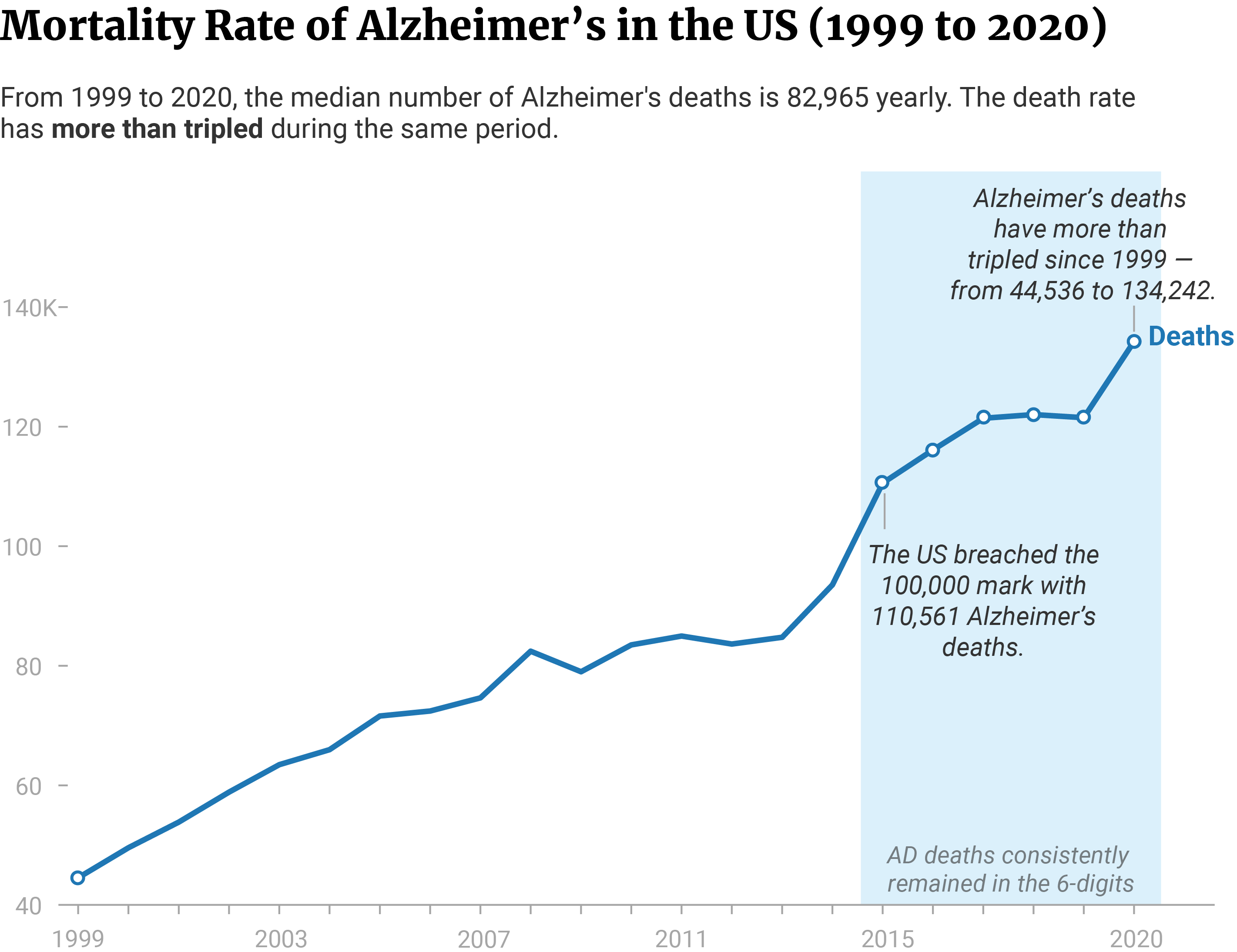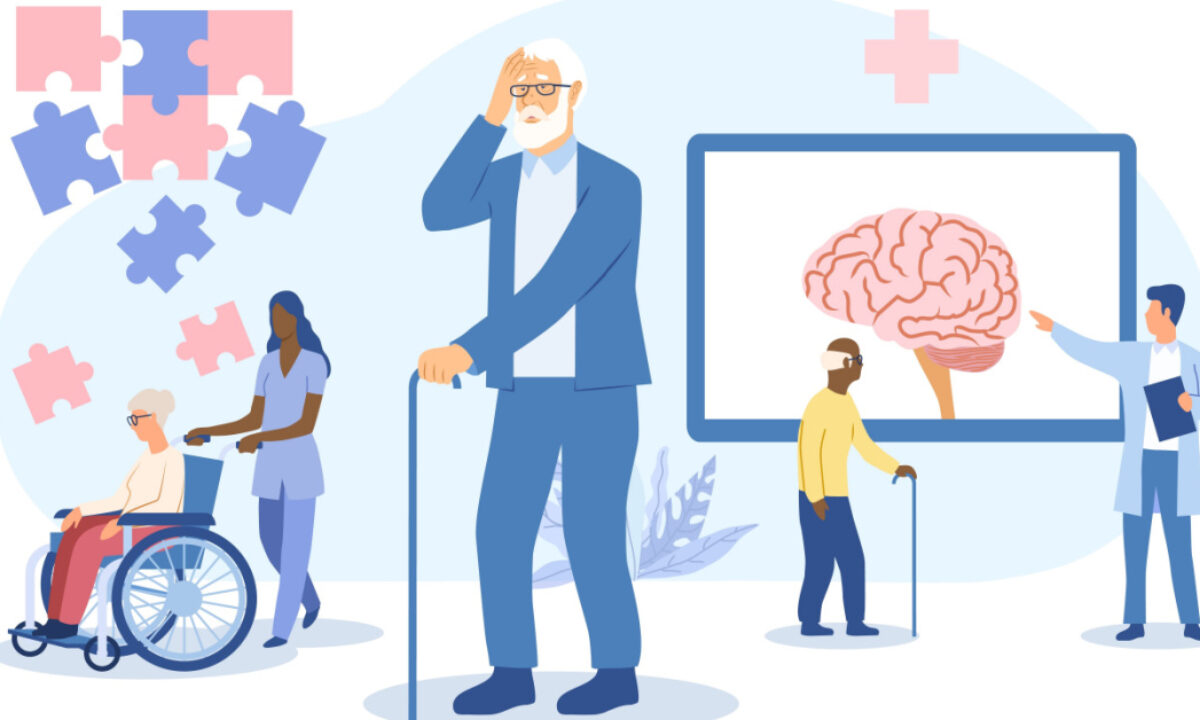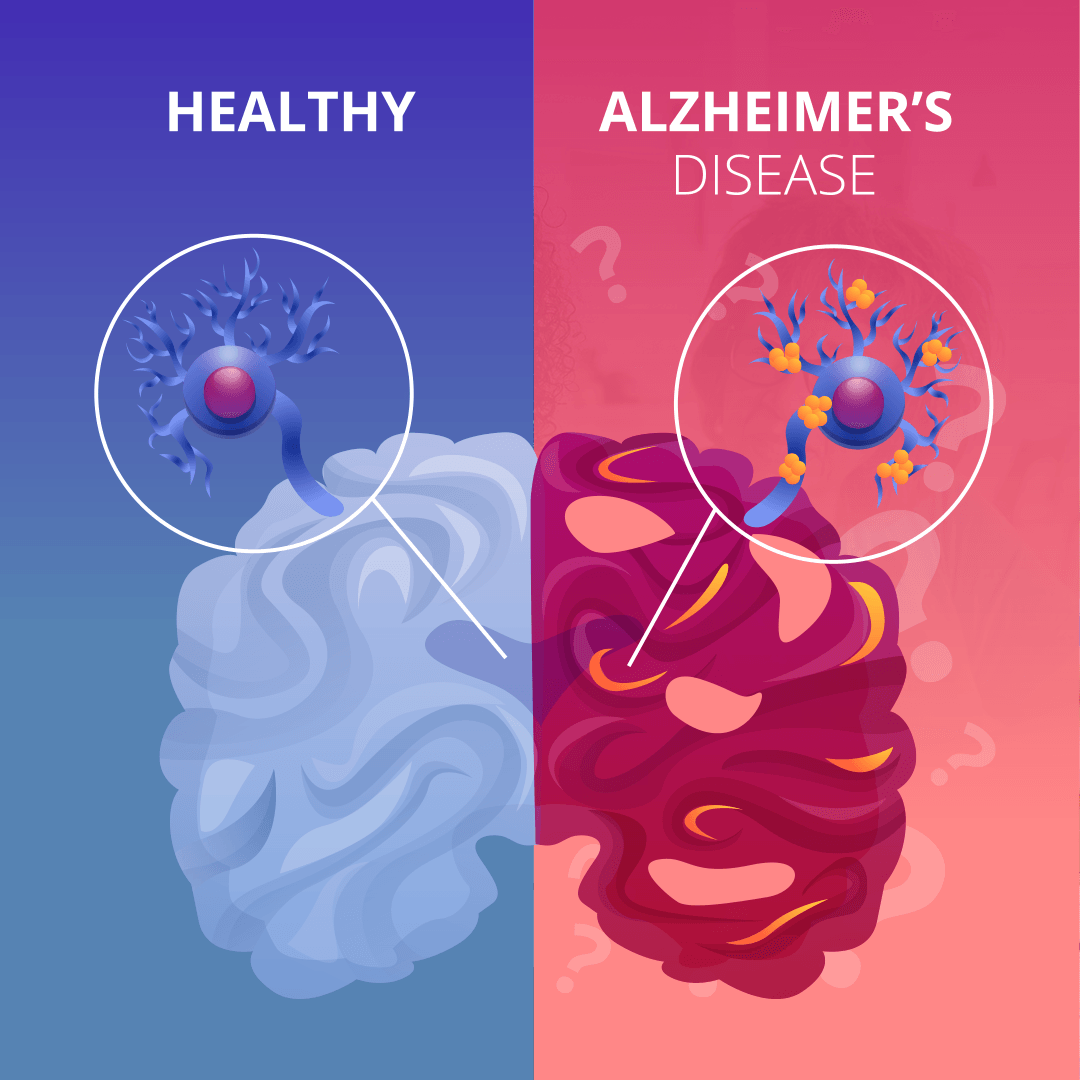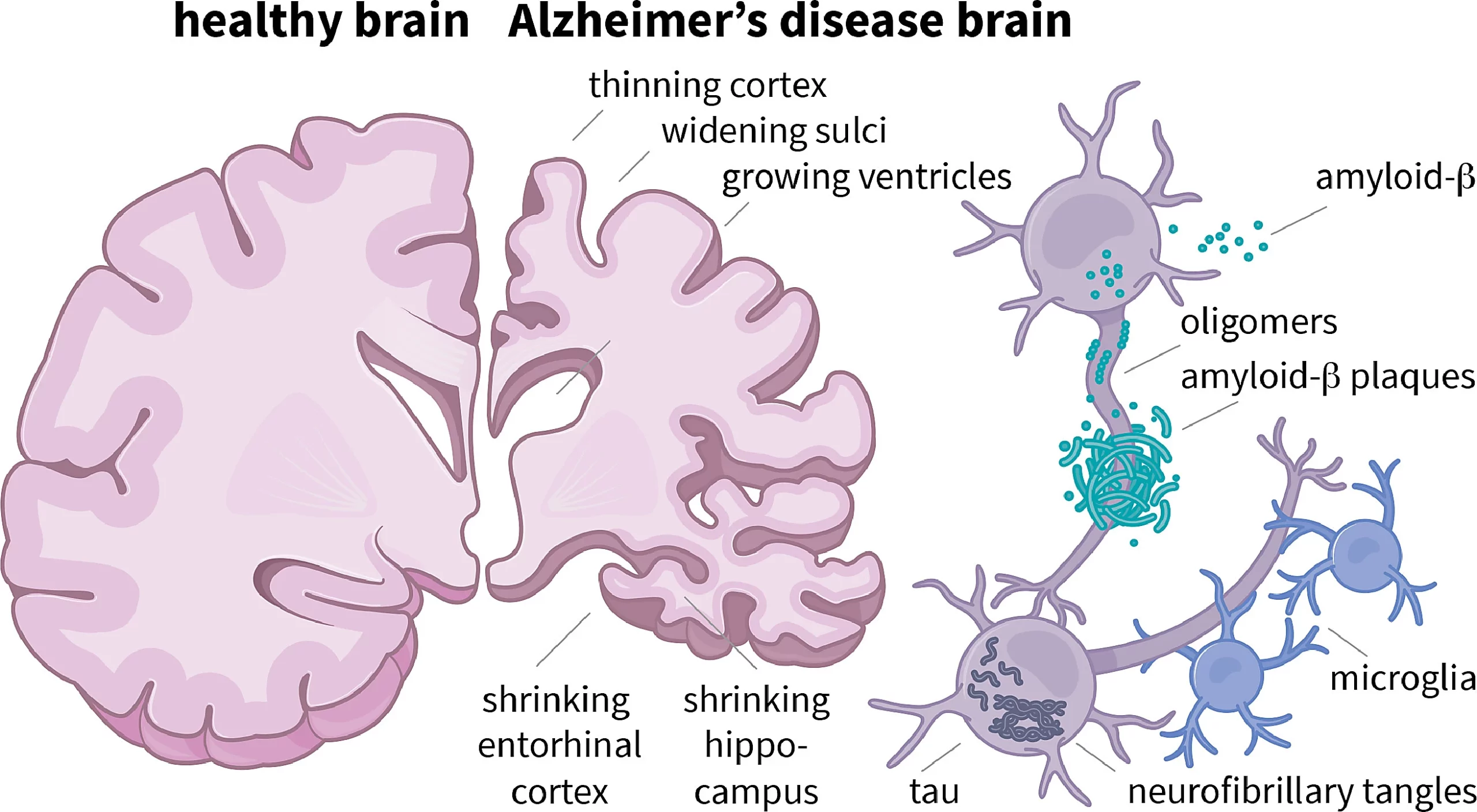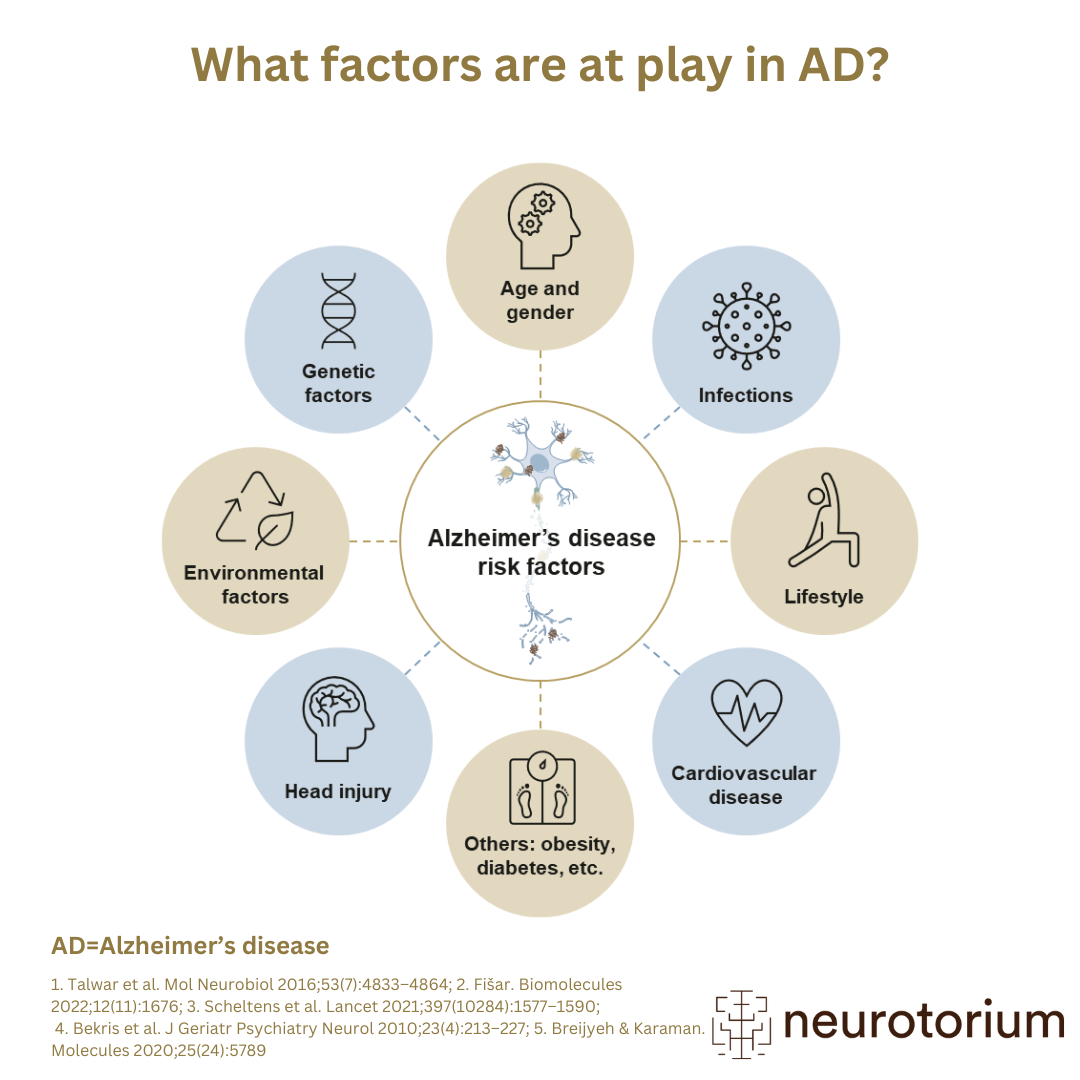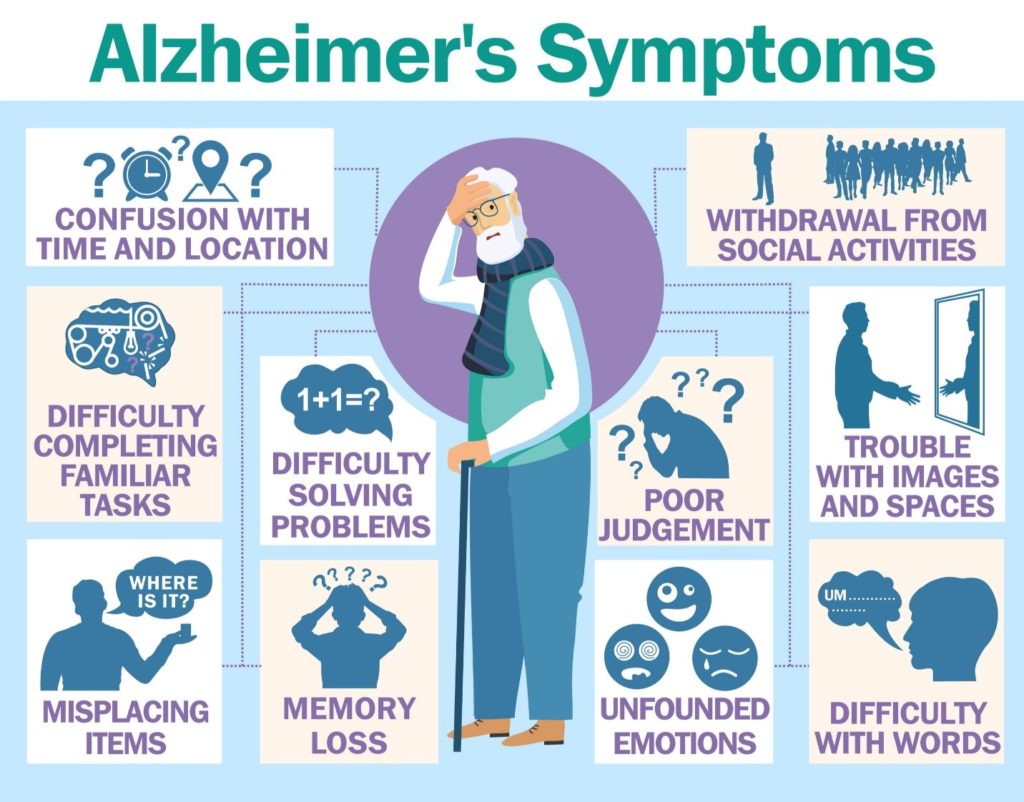
Key facts
- Alzheimer’s disease is a type of dementia that affects your thinking, behaviour and ability to do everyday tasks.
- Alzheimer’s disease is caused by a build-up of certain proteins in your brain, which gets worse over time.
- While Alzheimer’s disease is more common in older Australians, it is not a normal part of ageing.
- There is no cure for Alzheimer’s disease, but some medicines can help improve your quality of life.
- See a doctor if you have memory loss, difficulty with familiar tasks or language, or changes in mood or personality.
What is Alzheimer’s disease?
Alzheimer’s disease is the most common type of dementia. It causes problems with:
- memory
- thinking
- behaviour
Nearly 7 in 10 people with dementia have Alzheimer’s disease.
Alzheimer’s disease affects up to 1 in 10 Australians over 65 years of age. This goes up to 3 in 10 Australians over 85 years. While Alzheimer’s disease becomes more frequent with age it is not a normal part of ageing.
There are 2 main types of Alzheimer’s disease:
- Sporadic Alzheimer’s disease is the most common form. It usually happens after age 65 years. Its cause is not fully understood.
- Familial Alzheimer’s disease (sometimes referred to as ‘hereditary’) is caused by a very rare genetic condition. Symptoms usually appear in people in their 40s and 50s. This is known as younger onset dementia.
What are the symptoms of Alzheimer’s disease?
Early on, Alzheimer’s disease may be hard to notice. The first signs are usually memory loss and difficulty finding the right words for everyday things.
However, many people have trouble with memory but don’t have Alzheimer’s disease. It’s important to visit a doctor to work out the exact cause of any memory problems.
Other common symptoms of Alzheimer’s disease are:
- losing interest in your hobbies and activities
- being less willing to try new things
- being less able to adapt to change
- repeating yourself more or losing the thread of the conversation
- becoming lost when you’re away from familiar surroundings
- having difficulty taking care of your money
- having difficulty shopping or preparing meals
Symptoms will vary between people, depending on what areas of your brain are affected. Your symptoms may also change from day to day and can become worse with:
- stress
- illness
- tiredness
Alzheimer’s disease can be classified into 3 stages, based on the severity of symptoms:
- Mild Alzheimer’s disease — early signs of dementia, usually no extra support is needed.
- Moderate Alzheimer’s disease — symptoms are difficult to cope with and support is likely to be needed.
- Advanced Alzheimer’s disease — continuous care in all daily activities may be needed.
What causes Alzheimer’s disease?
The brain contains millions of neurons (brain cells). These cells organise how the brain stores memories, learns habits and shapes our personality. Signals pass along the connections between brain cells in the form of chemicals called neurotransmitters.
In people with Alzheimer’s disease, many processes affect these cells and chemicals. These include:
- amyloid plaque deposits
- neurofibrillary tangles
Amyloid plaques are deposits outside the brain cells — they stop the brain cells from passing signals properly.
Neurofibrillary tangles are deposits inside the brain cells — they kill the cells by blocking off food and energy.
Neuronal death causes shrinking in the cortex (the outer layer of the brain). The cortex is vital to memory, language and judgement.
Scientists are unsure of what triggers the formation of the plaques and tangles in Alzheimer’s disease. Suspected causes are:
- problems with blood vessels
- genetic links
- hormonal changes
For people with familial Alzheimer’s disease, mutations in 3 genes have been found to increase the production of amyloid plaques. There are other ‘risk-factor genes’ that may increase your chance of getting Alzheimer’s disease earlier in life.
How is Alzheimer’s disease diagnosed?
Unfortunately, there is no single test that can confirm Alzheimer’s disease. A diagnosis comes after careful assessment. This may involve:
- a detailed medical history
- a full physical examination
- cognitive tests to check your memory and thinking
- urine tests and blood tests
- medical imaging, such as an MRI scan, to assess your brain
A diagnosis of Alzheimer’s disease can be made once other causes of your symptoms have been ruled out.
An early diagnosis allows you to plan for your future. You can start to talk about the medical treatment and further assistance you will need.
How is Alzheimer’s disease treated?
Although there is no cure, certain treatments may improve symptoms for a time.
Medicines
A group of medicines called cholinesterase inhibitors may help you carry out your daily activities. These work by increasing the level of a brain chemical called acetylcholine. This helps to restore communication between brain cells.
You may be given other medicines to help ease symptoms such as:
- sleeplessness
- agitation
- anxiety
- depression
These treatments don’t treat Alzheimer’s disease, but can help improve your quality of life.
Researchers are looking for ways to cure Alzheimer’s disease.
Lifestyle changes
There are other things that you can do to improve your quality of life. Where possible, you should try to:
- take care of any other health conditions you have
- learn about Alzheimer’s disease
- maintain normal contact with your friends and family
- exercise regularly
If you have any concerns about your safety, such as driving with dementia, talk with your doctor for advice.
Creating a dementia friendly home
If you care for someone with Alzheimer’s disease, it may be helpful to make changes to their home environment. This may help them feel less disoriented in daily life. For example, you could add clear instructions on how to open doors.
Check out Dementia Australia’s help sheets on creating a dementia-friendly environment.
Can you prevent Alzheimer’s disease?
There is no sure way to prevent Alzheimer’s disease. However, you can decrease your risk of developing Alzheimer’s disease by caring for your health. What’s good for your heart is good for your brain! Try to:
- have a healthy diet
- don’t smoke
- keep physically active
- keep your mind active
An active mind helps build brain cells and strengthens their connections. You can keep your mind active by:
- socialising
- doing puzzles
- doing crosswords
- learning a language or something else that interests you
What are some complications of Alzheimer’s disease?
Alzheimer’s disease is a progressive disease — this means that it gets worse over time. How quickly this happens can differ between people.
Some people may only have Alzheimer’s in the last 5 years of their life. Other people may have it for up to 20 years.
Complications of Alzheimer’s disease may include:
- being unable to do daily tasks such as planning meals and managing money
- a tendency to wander from home
- personality changes that make relationships more difficult
- delusions and hallucinations in advanced stages of the disease
People with Alzheimer’s disease may also experience sundowning. This is when a person’s symptoms get worse towards the end of the day, and they may become more restless, confused, anxious and insecure.
People with Alzheimer’s disease eventually need full time care and support.
Caring for someone with Alzheimer’s disease
Caring for someone with Alzheimer’s disease can be hard — but also rewarding. In the early stage of the illness, very little help may be needed. As Alzheimer’s disease progresses, care needs will increase.
Take advantage of the community support that’s available for people with Alzheimer’s disease, their families and carers.
Plan ahead — it is wise to plan early for the future. Arrange for a trusted person to take care of your loved one’s affairs. This is called a power of attorney.
Also, support them to write an Advanced Care Plan. This details the healthcare they want to get as their dementia gets worse.
Care for yourself — It’s important to take breaks from your caring role to look after your own needs.
